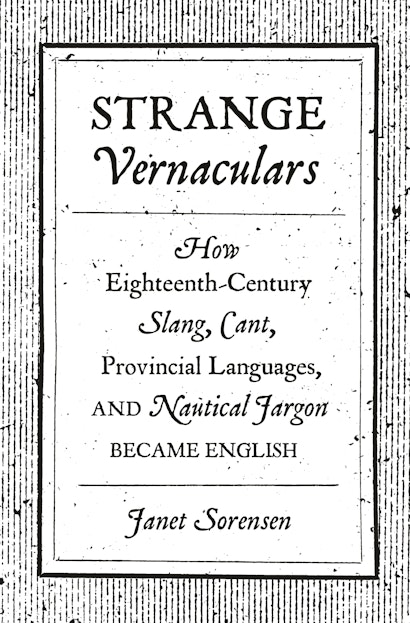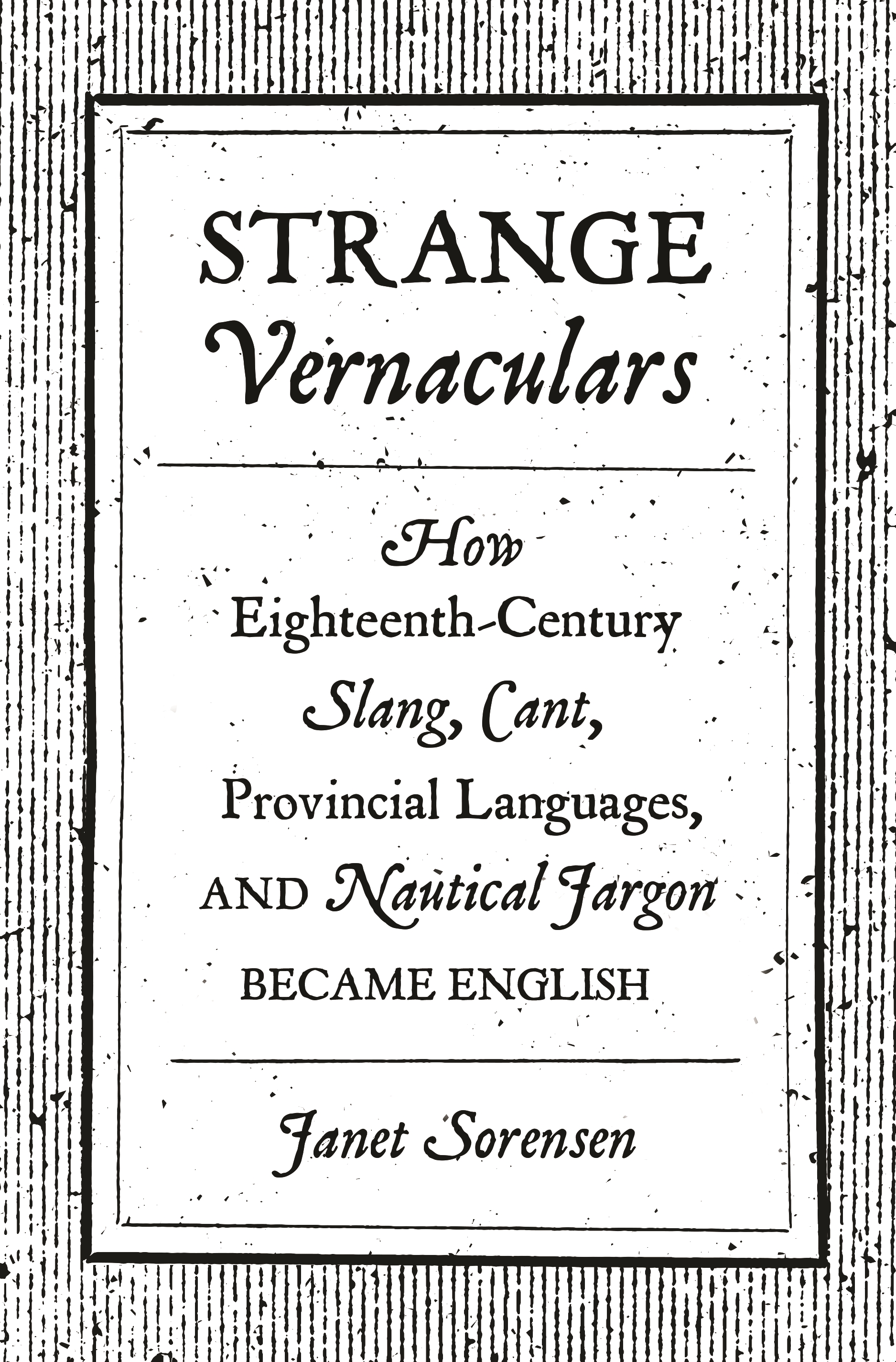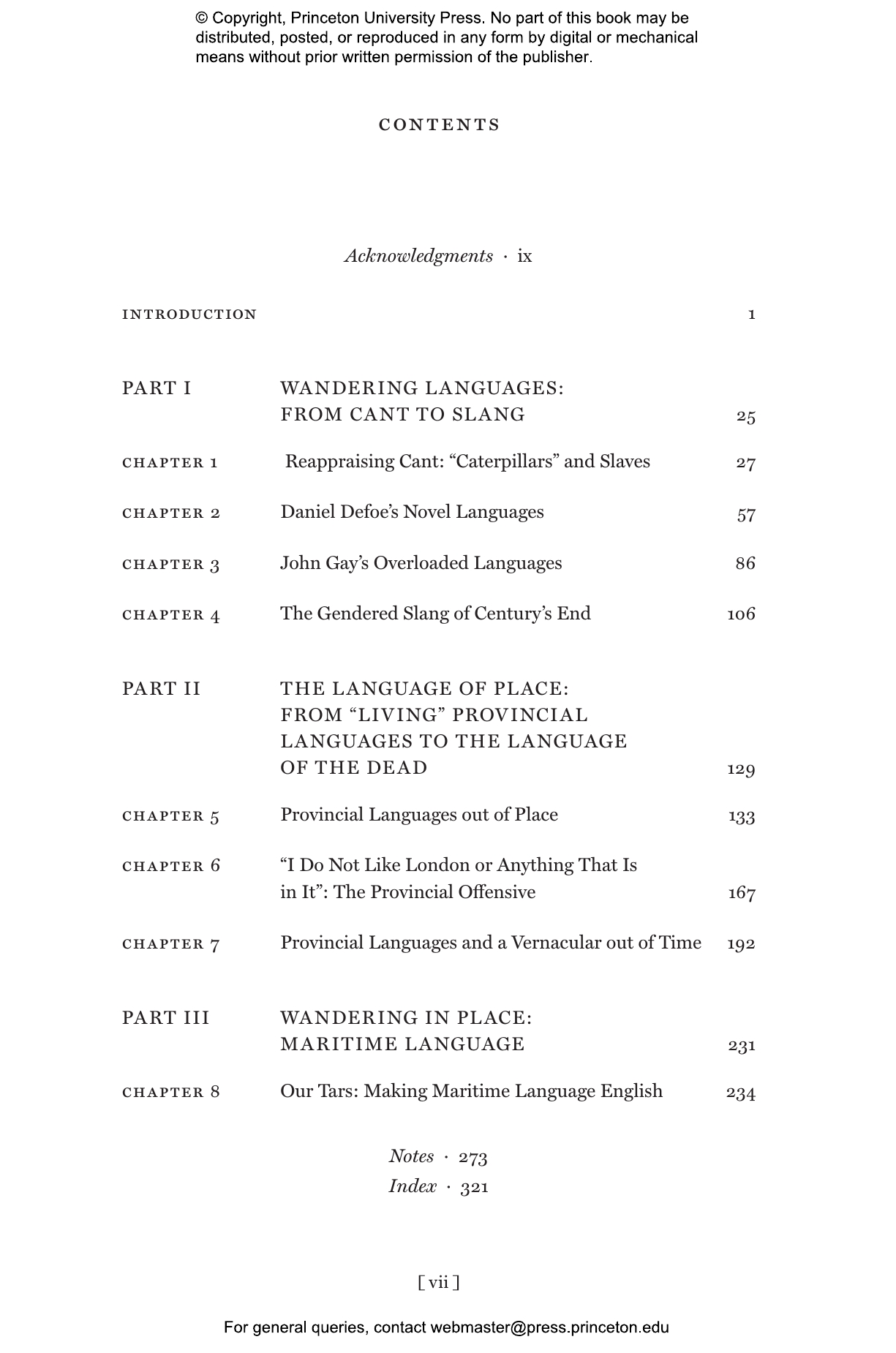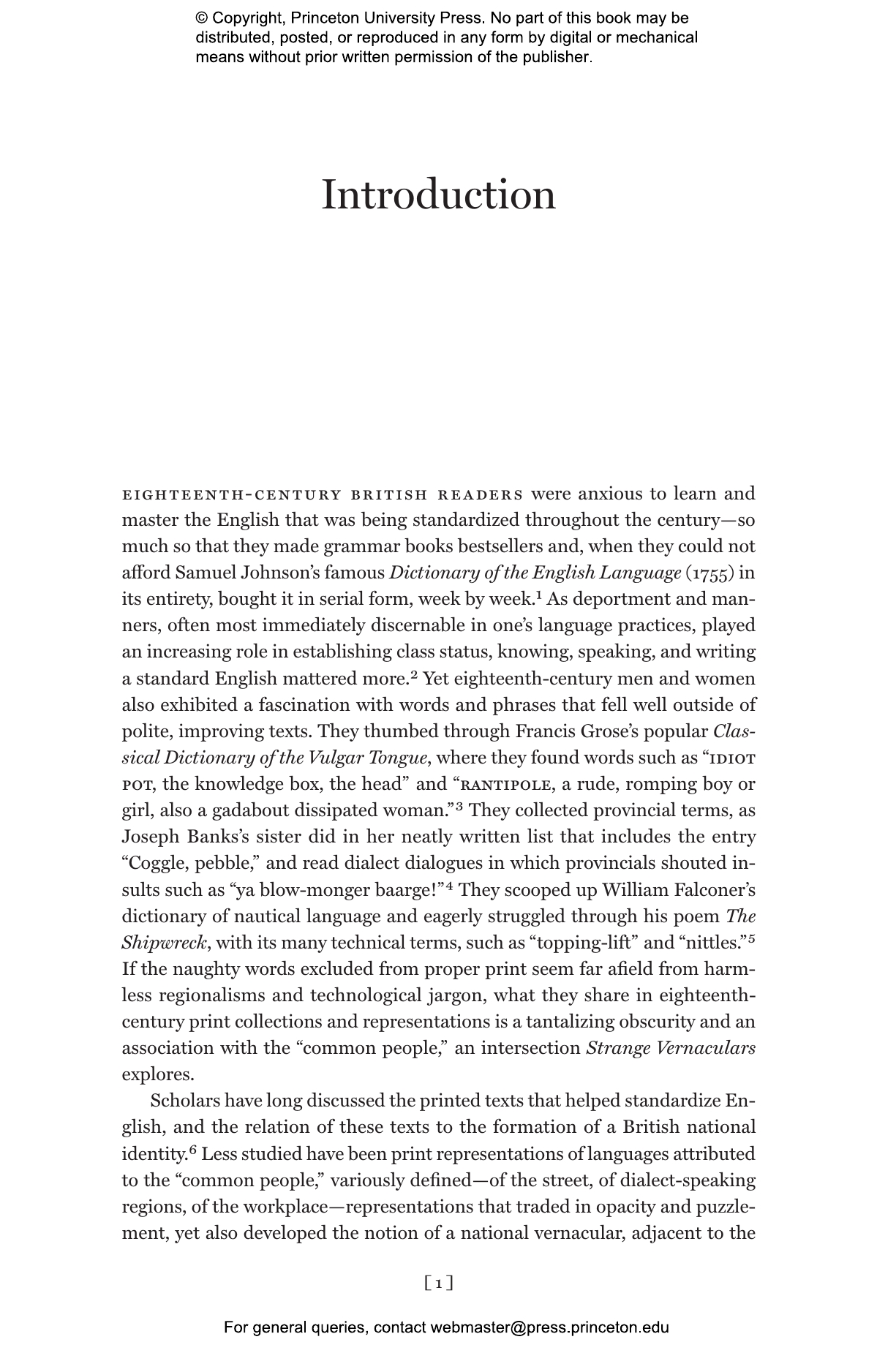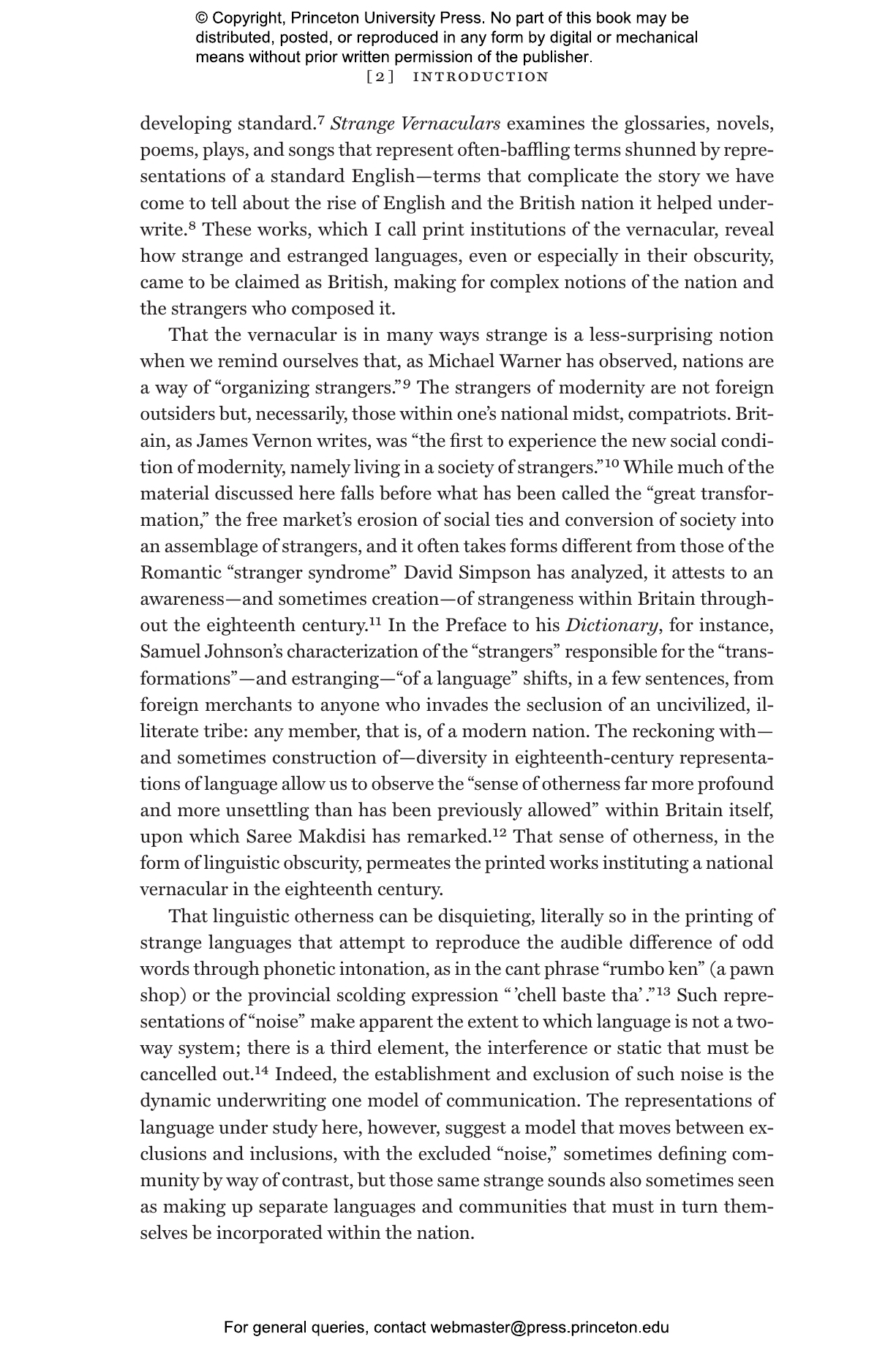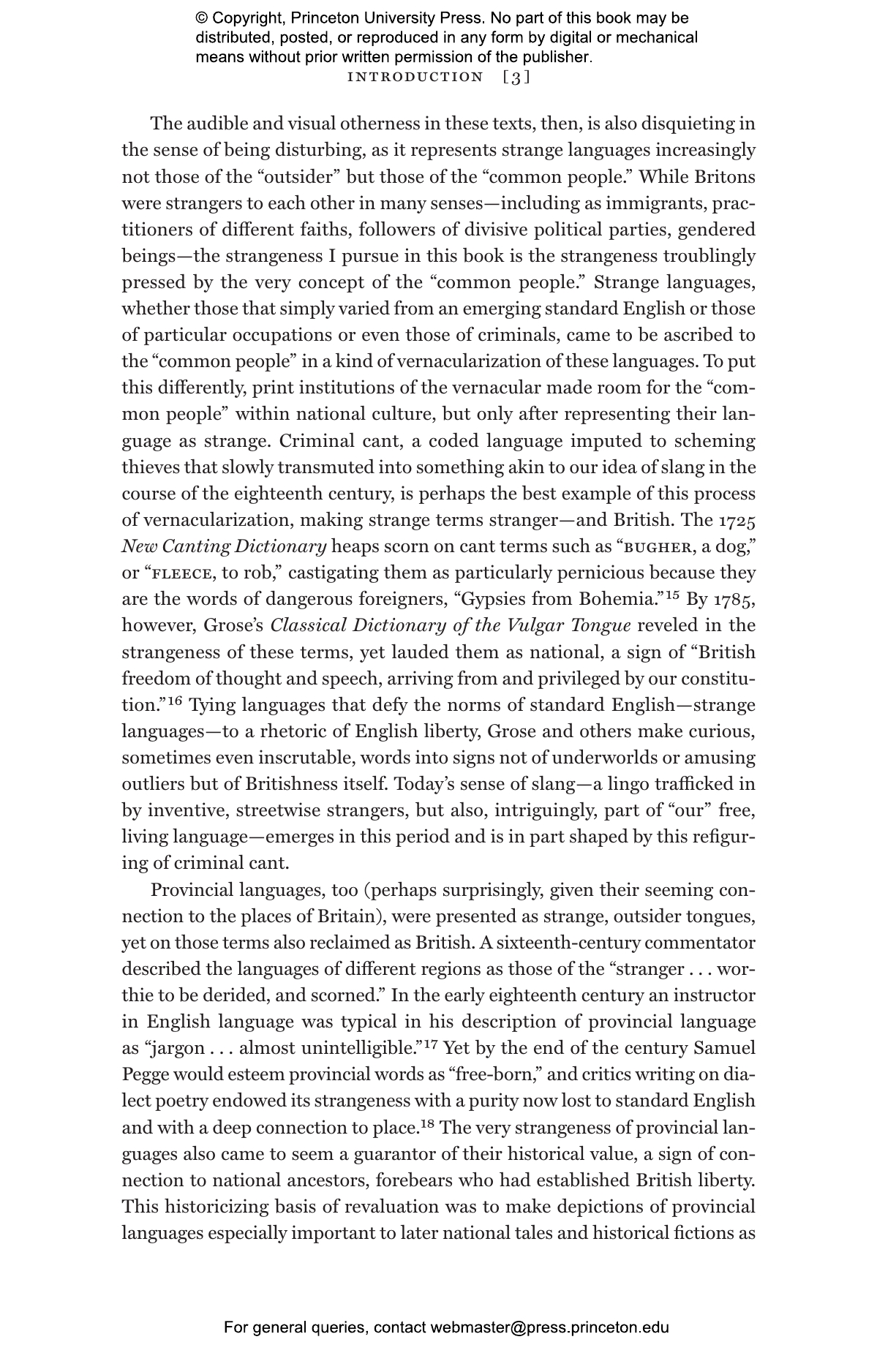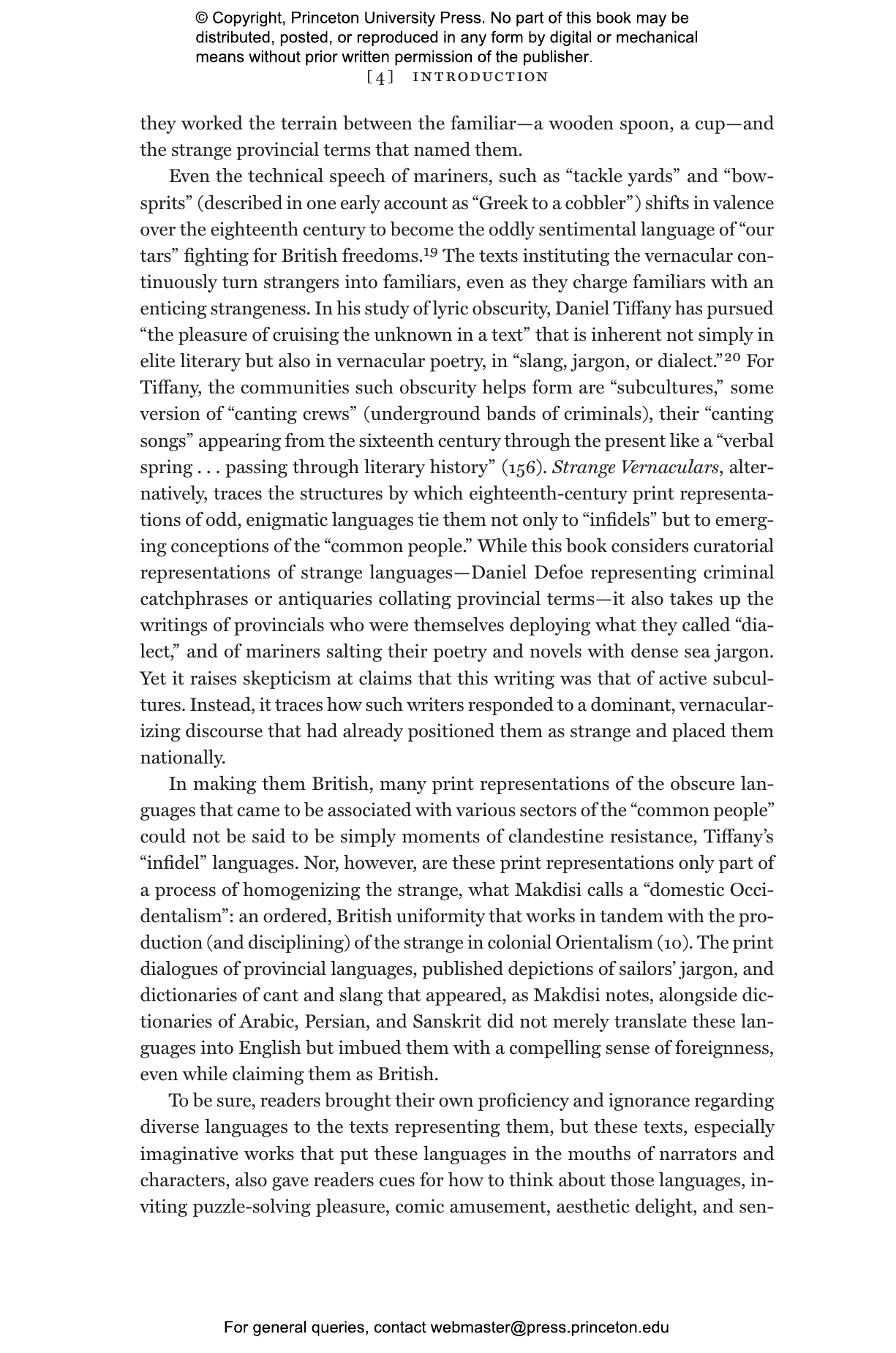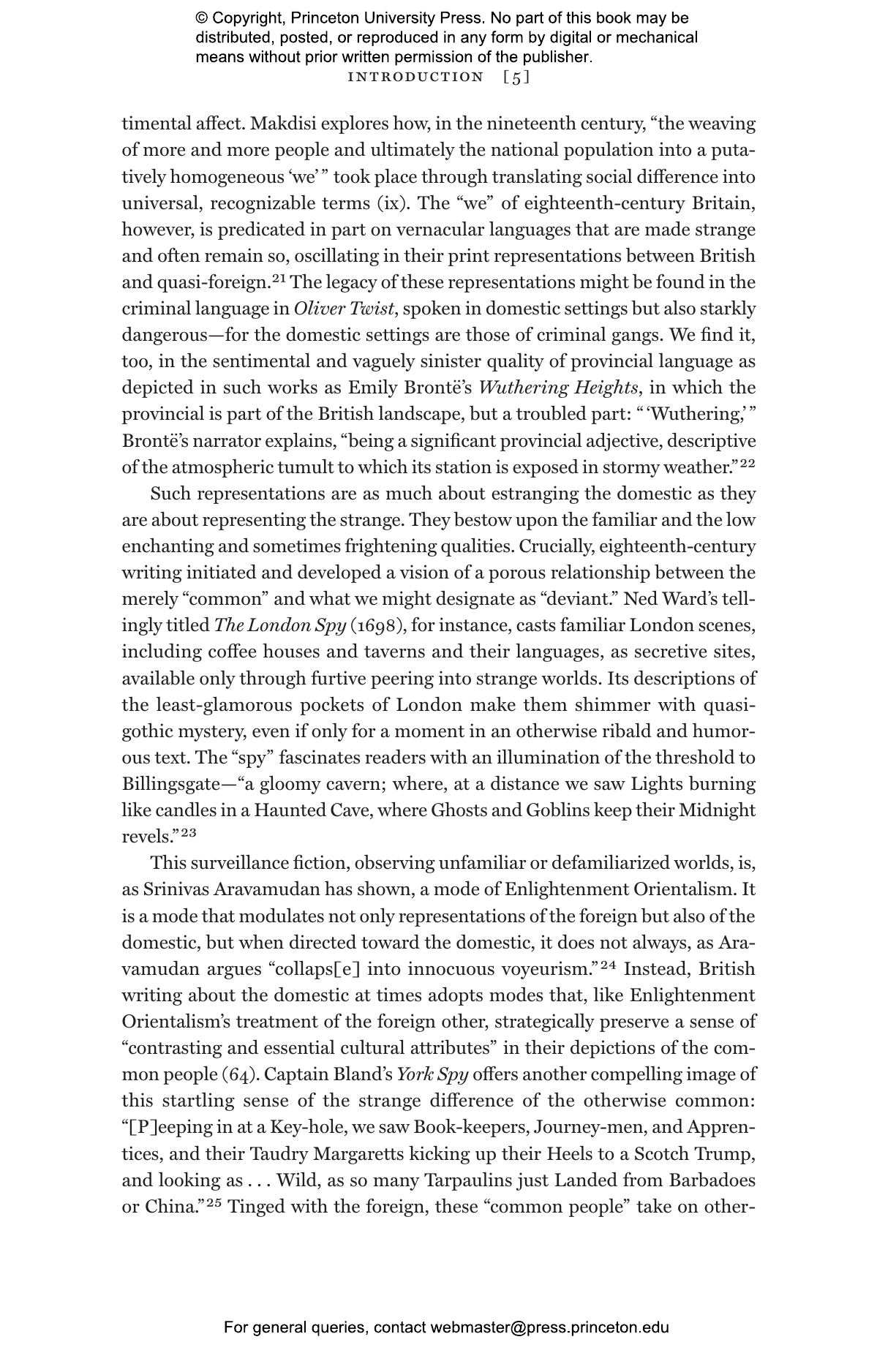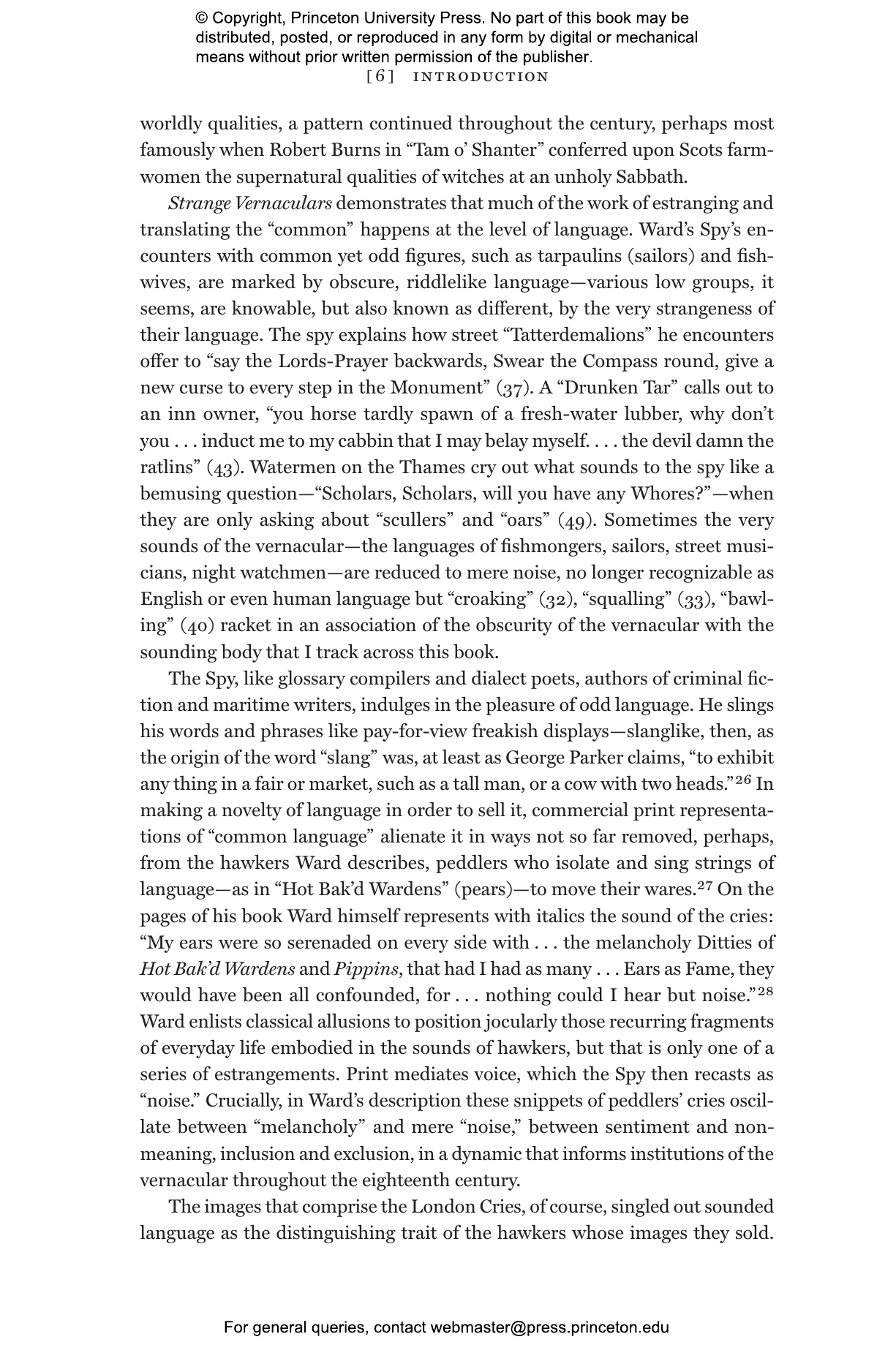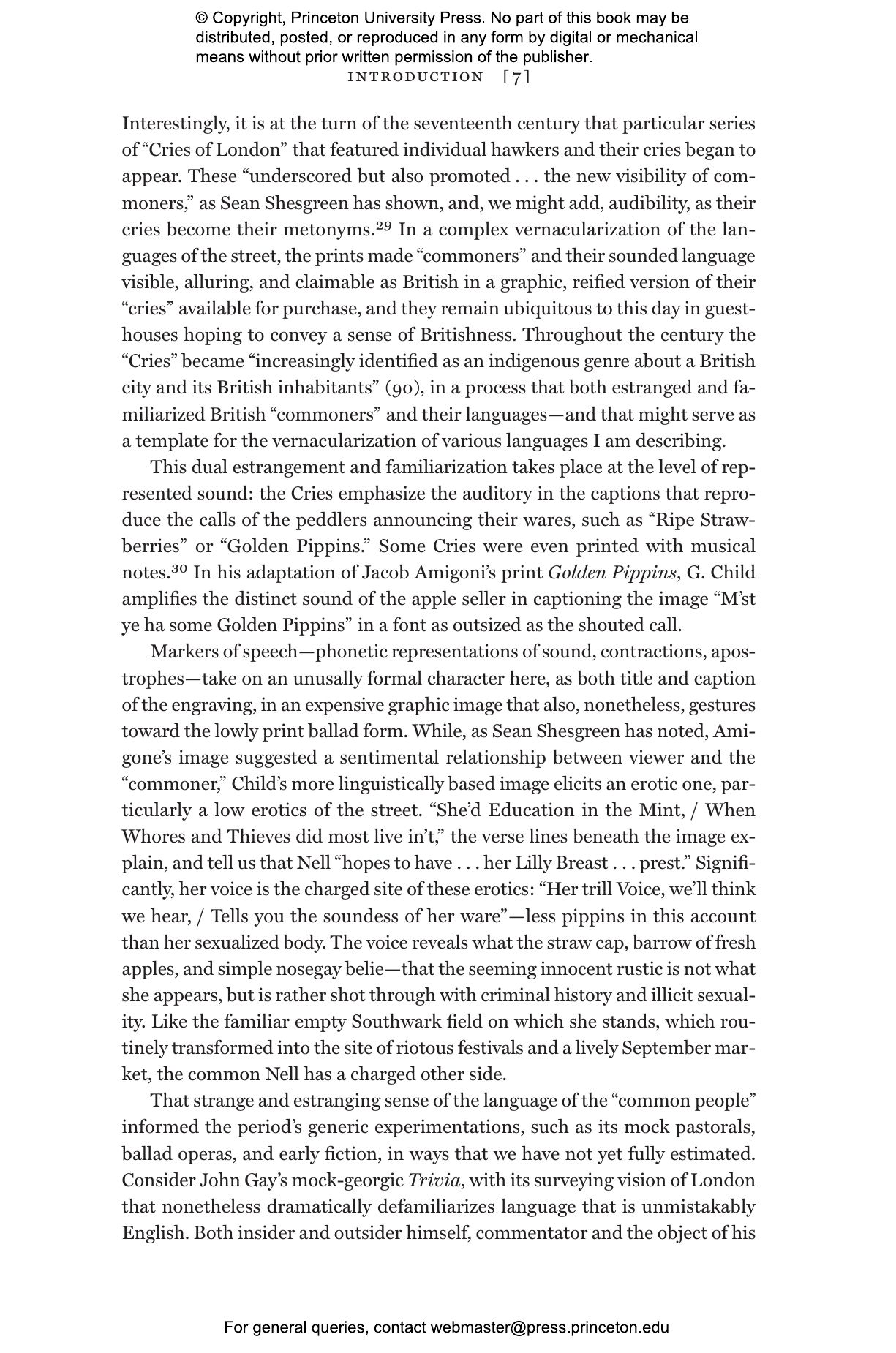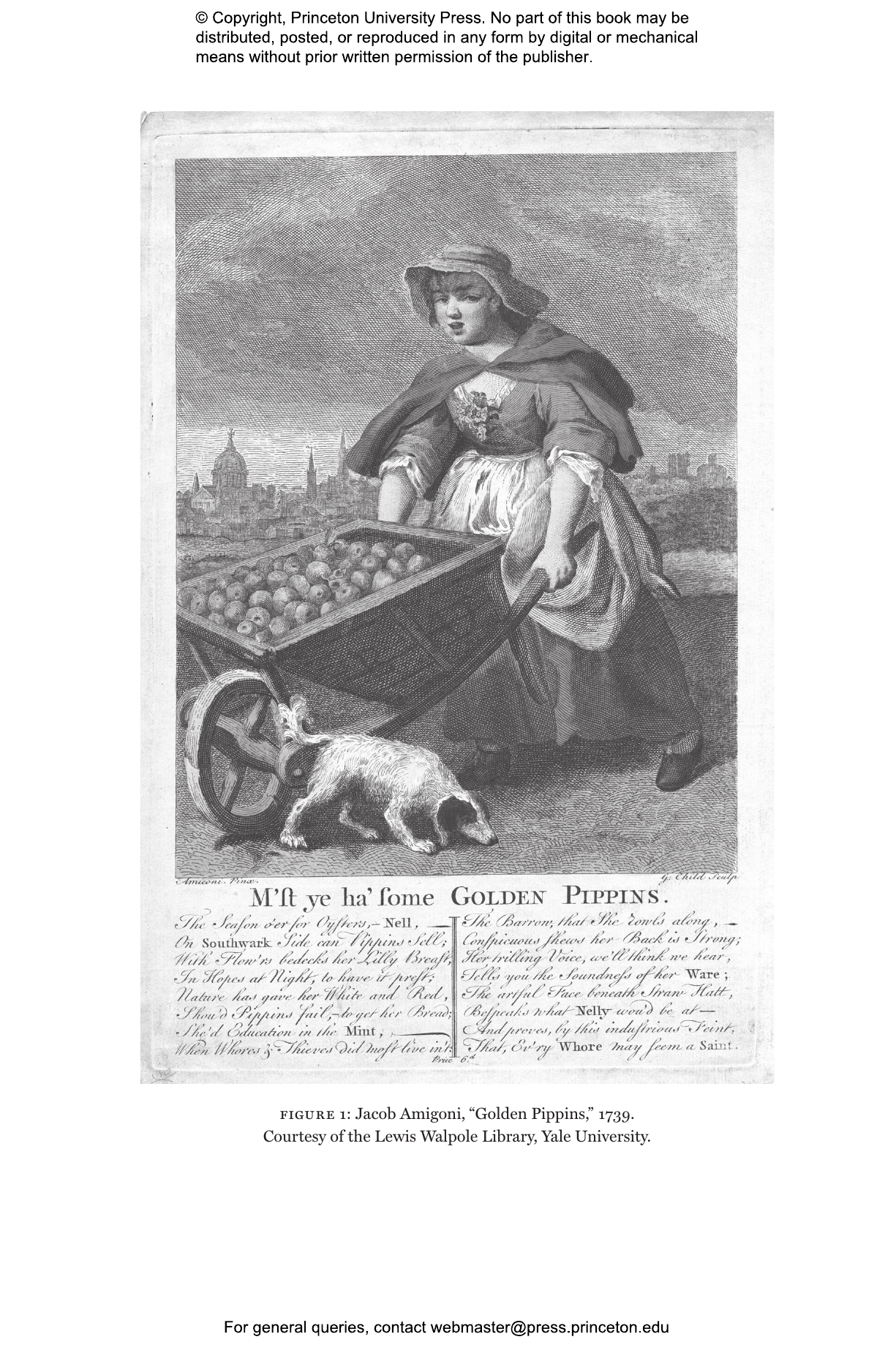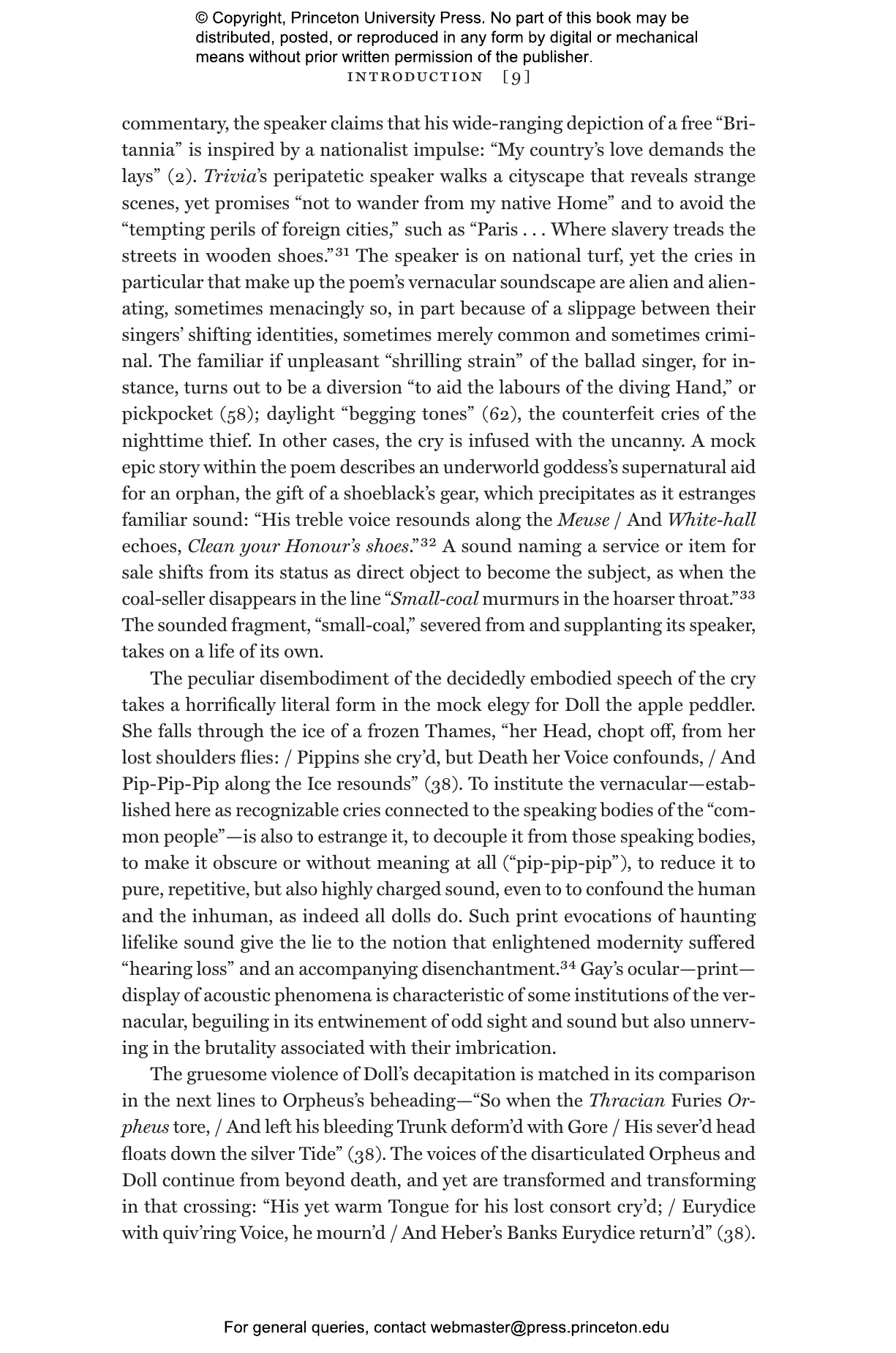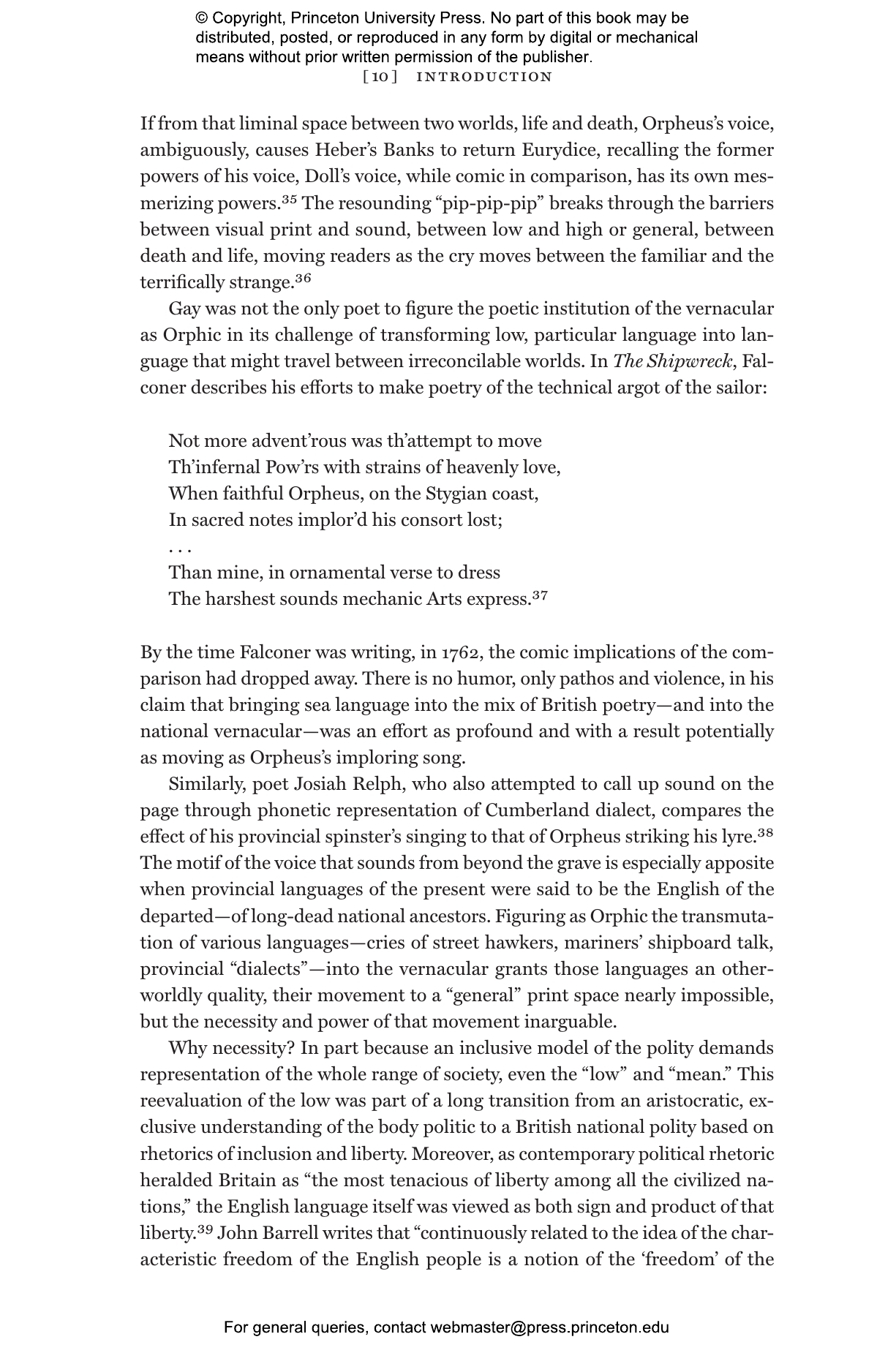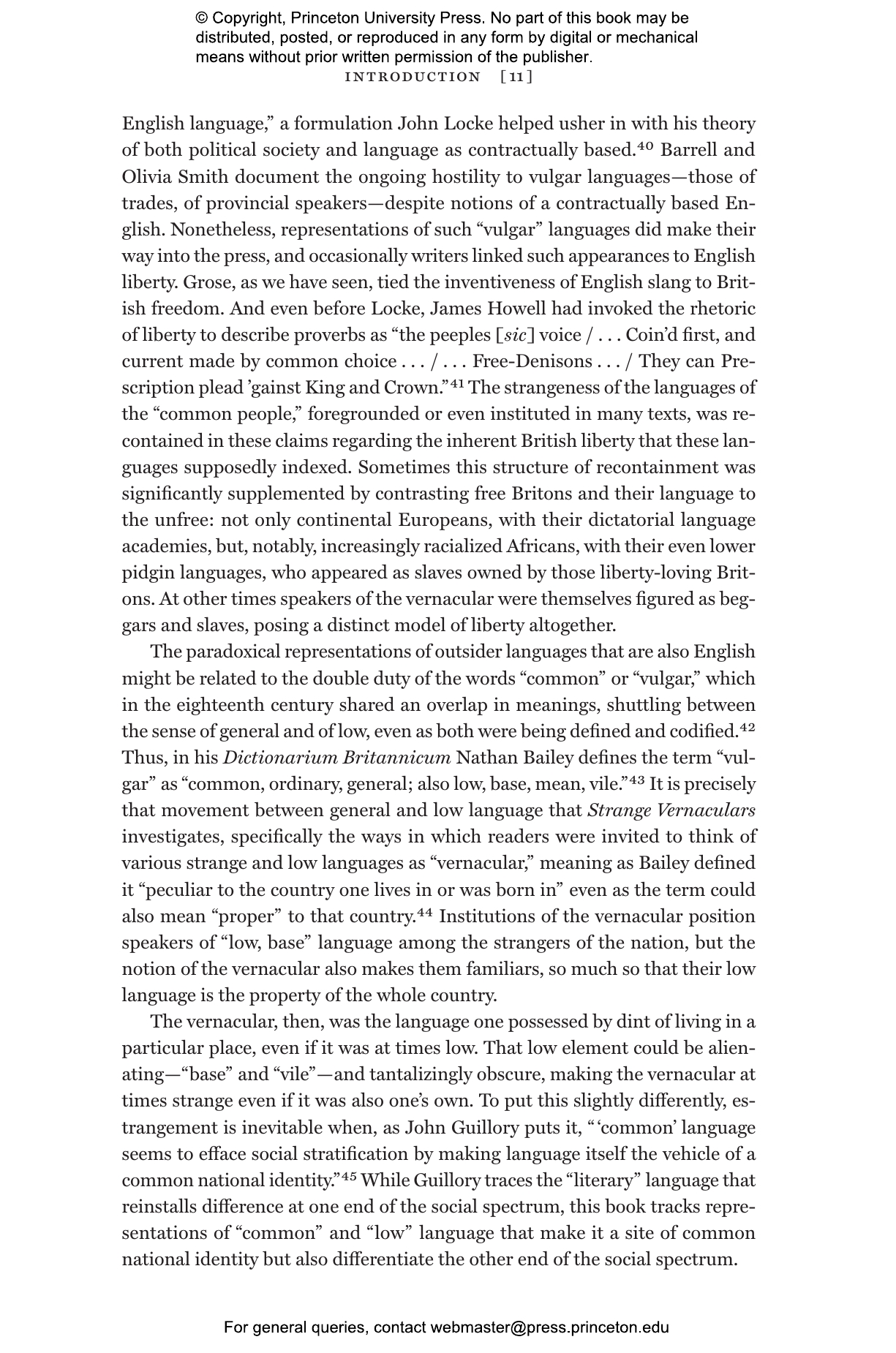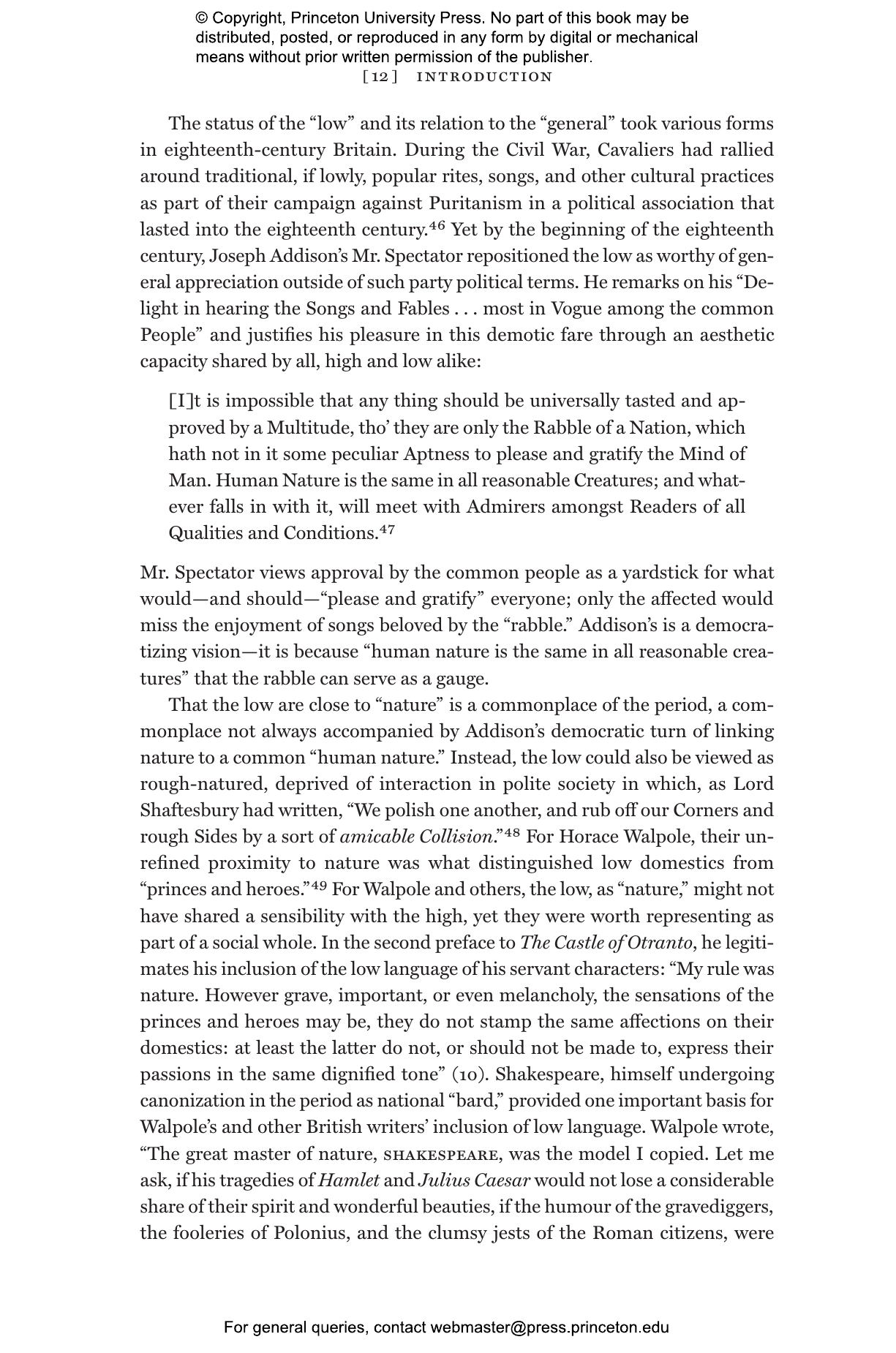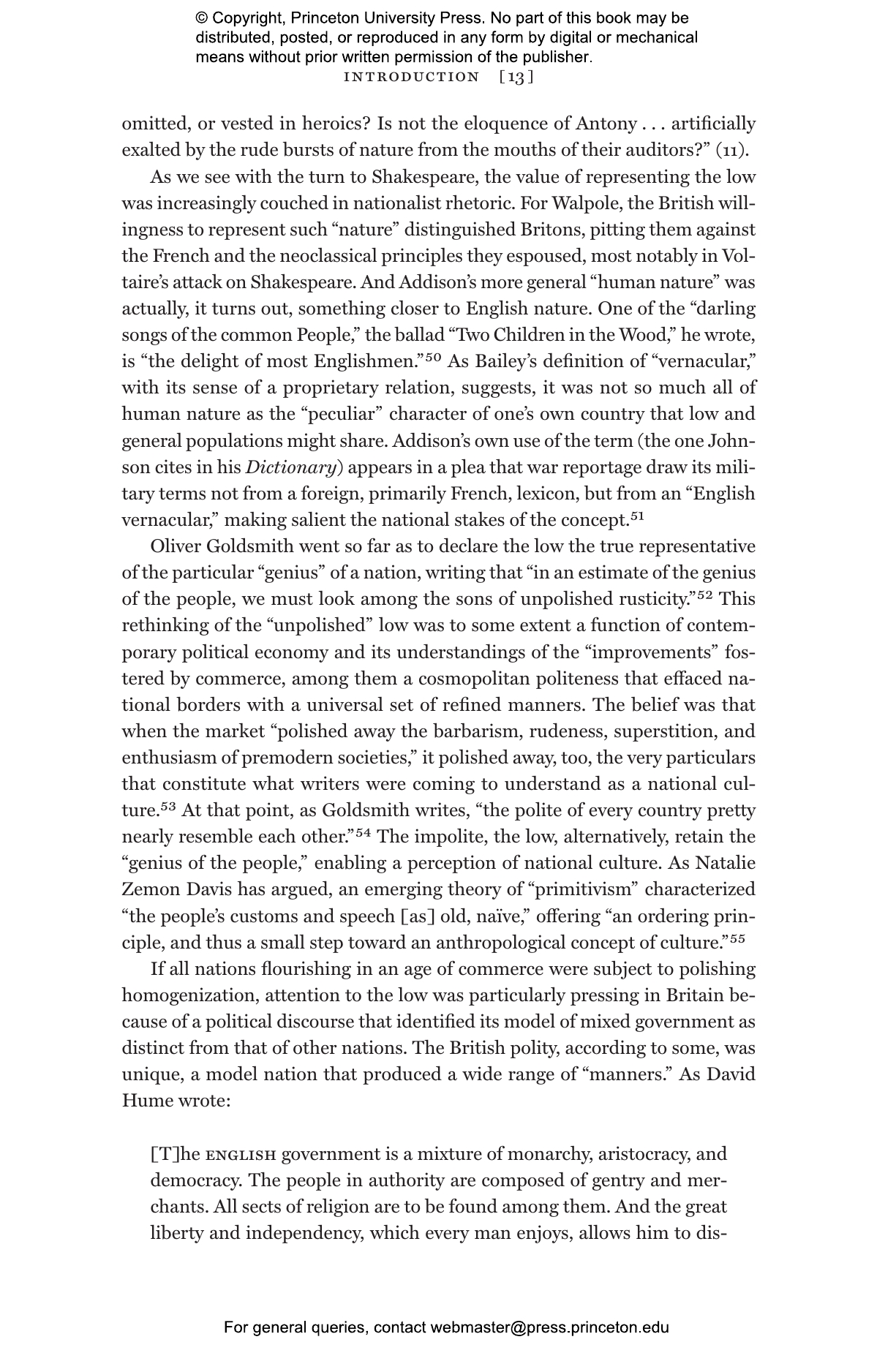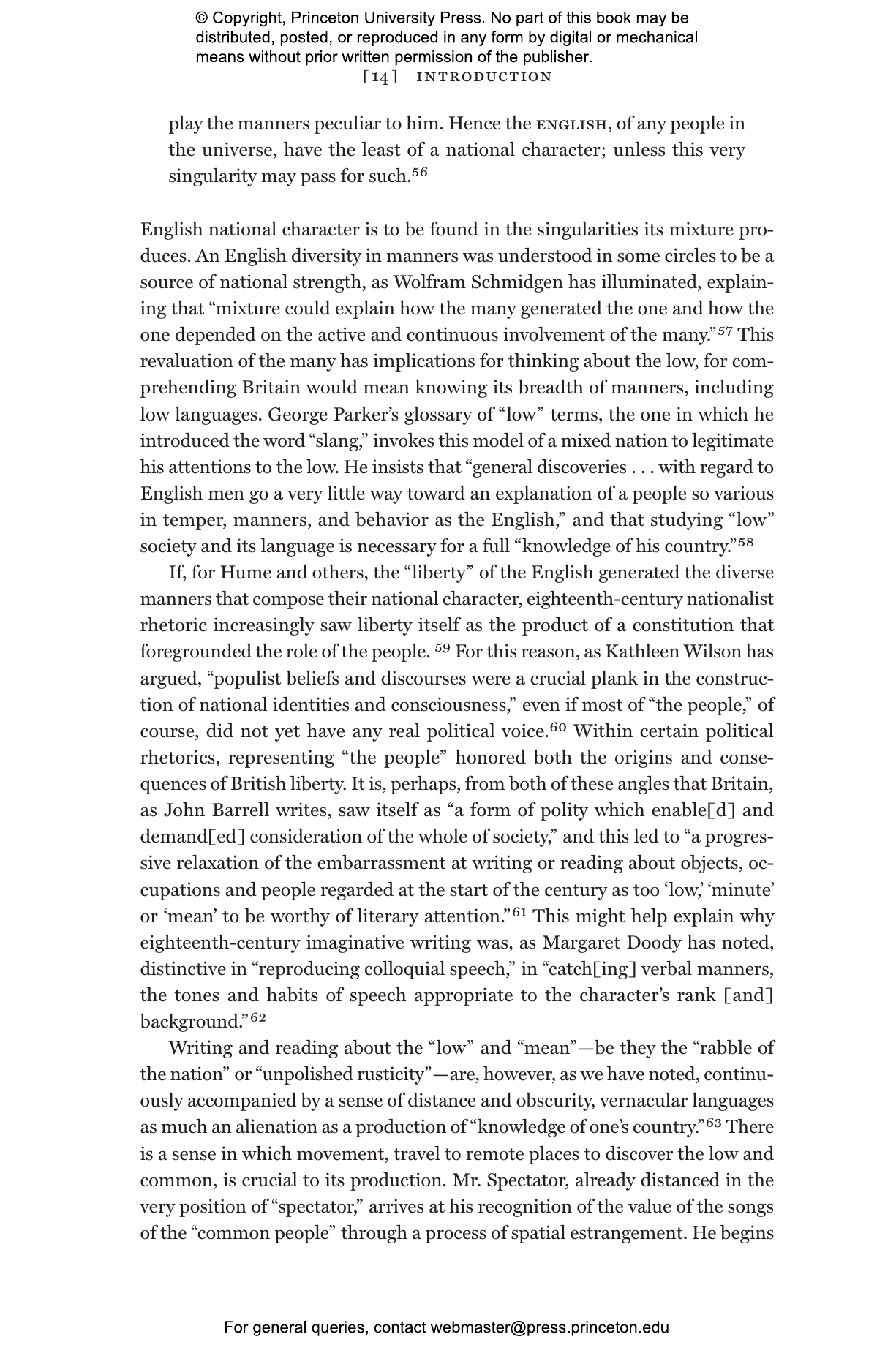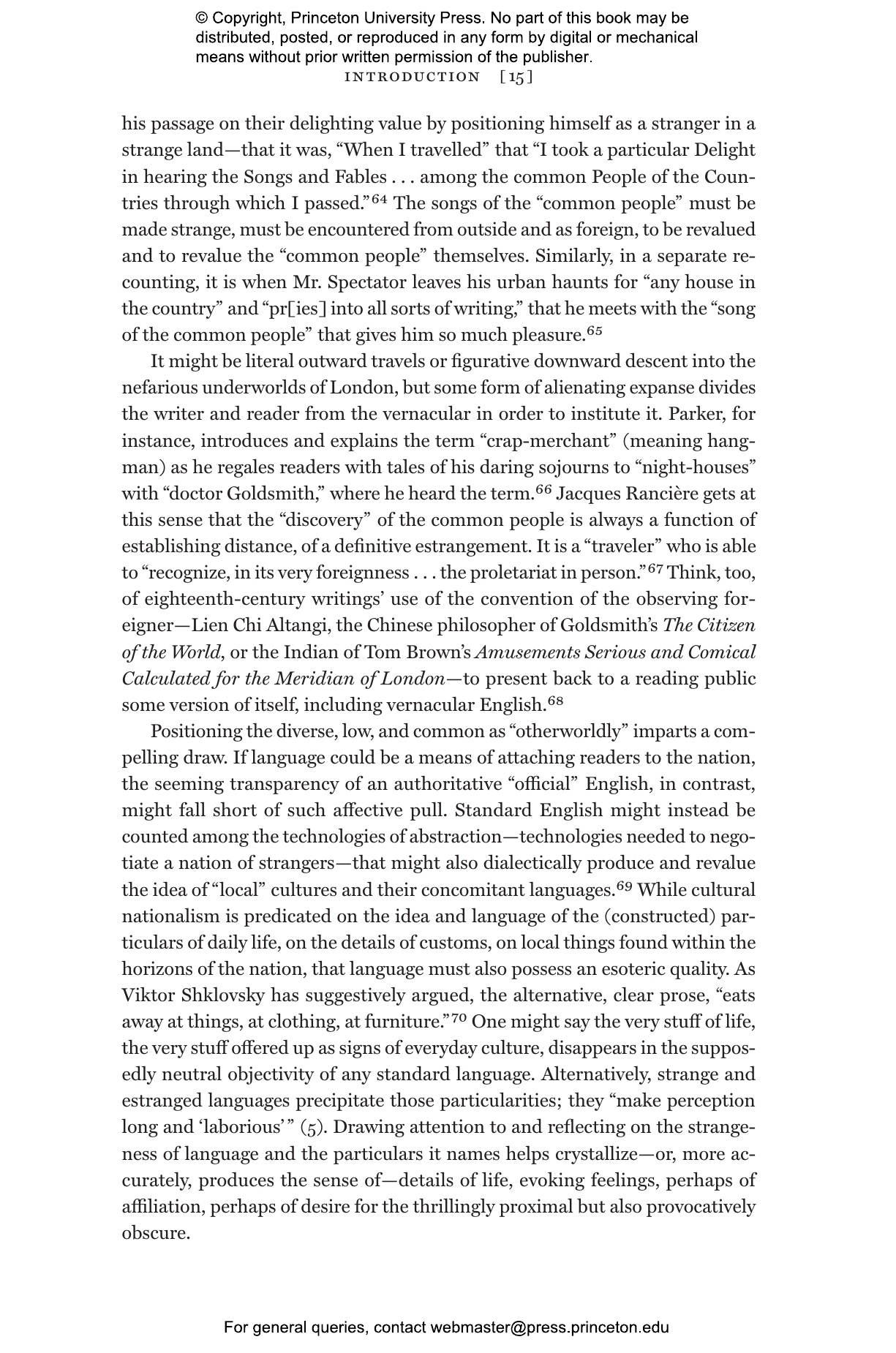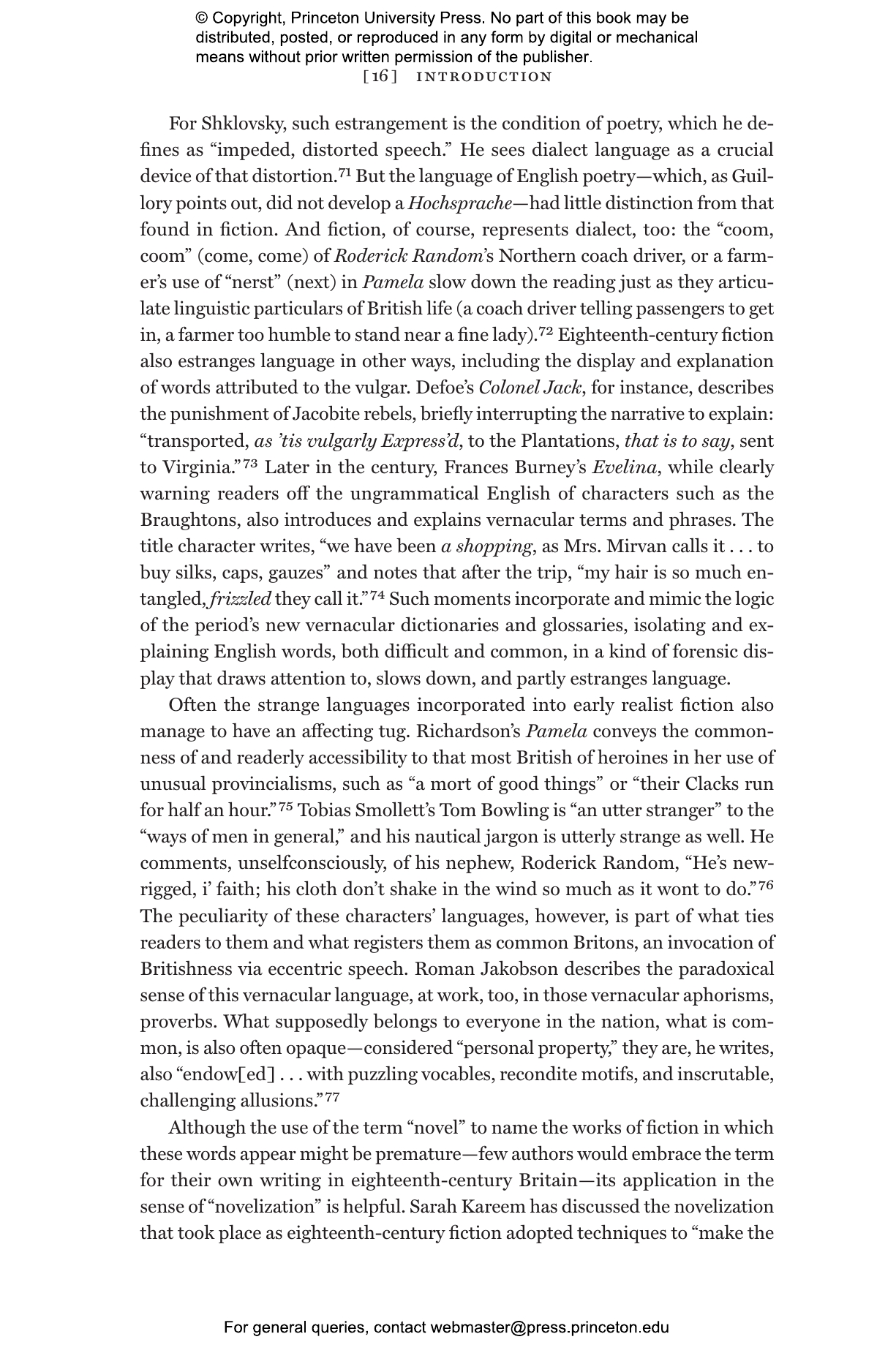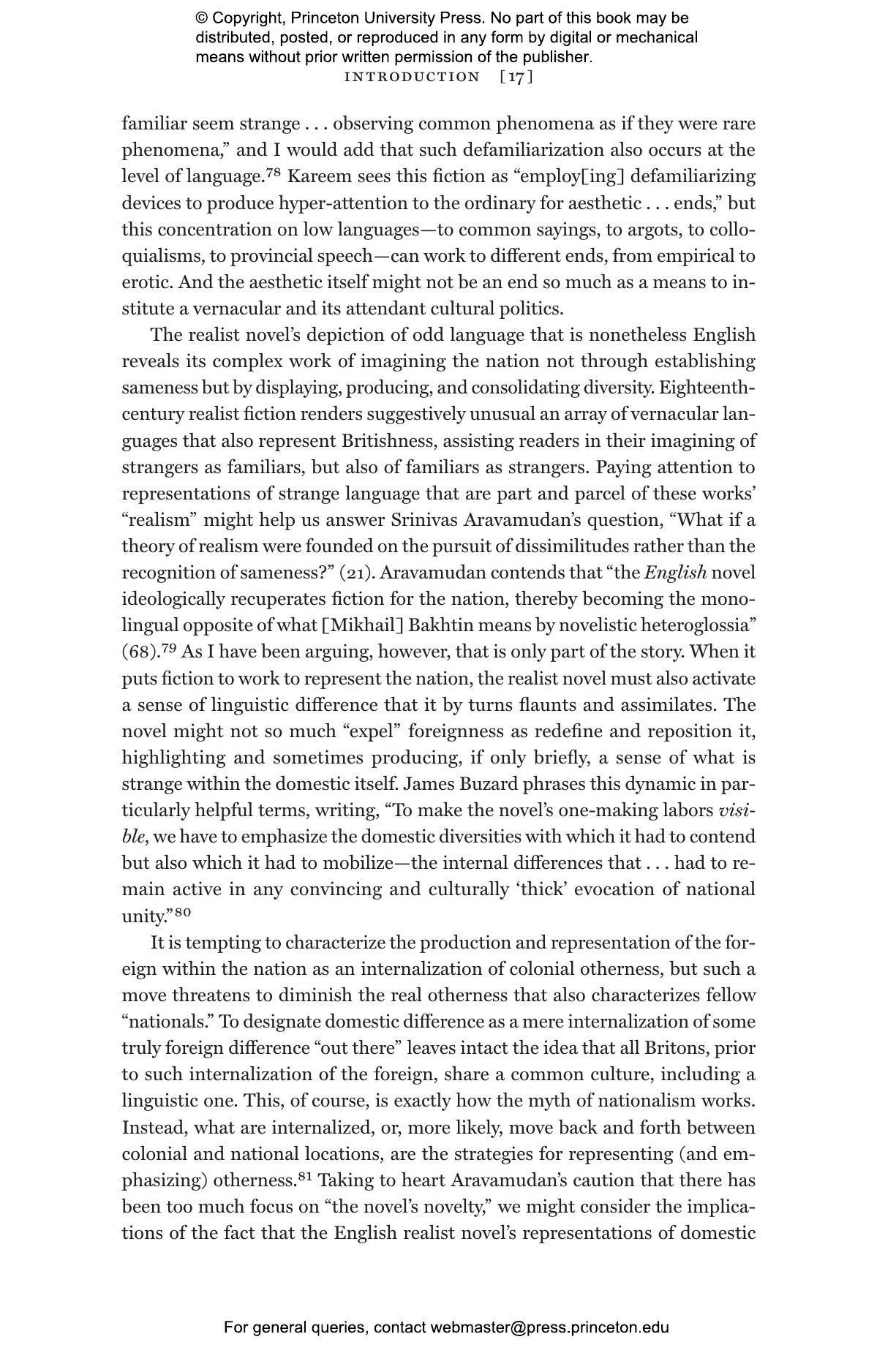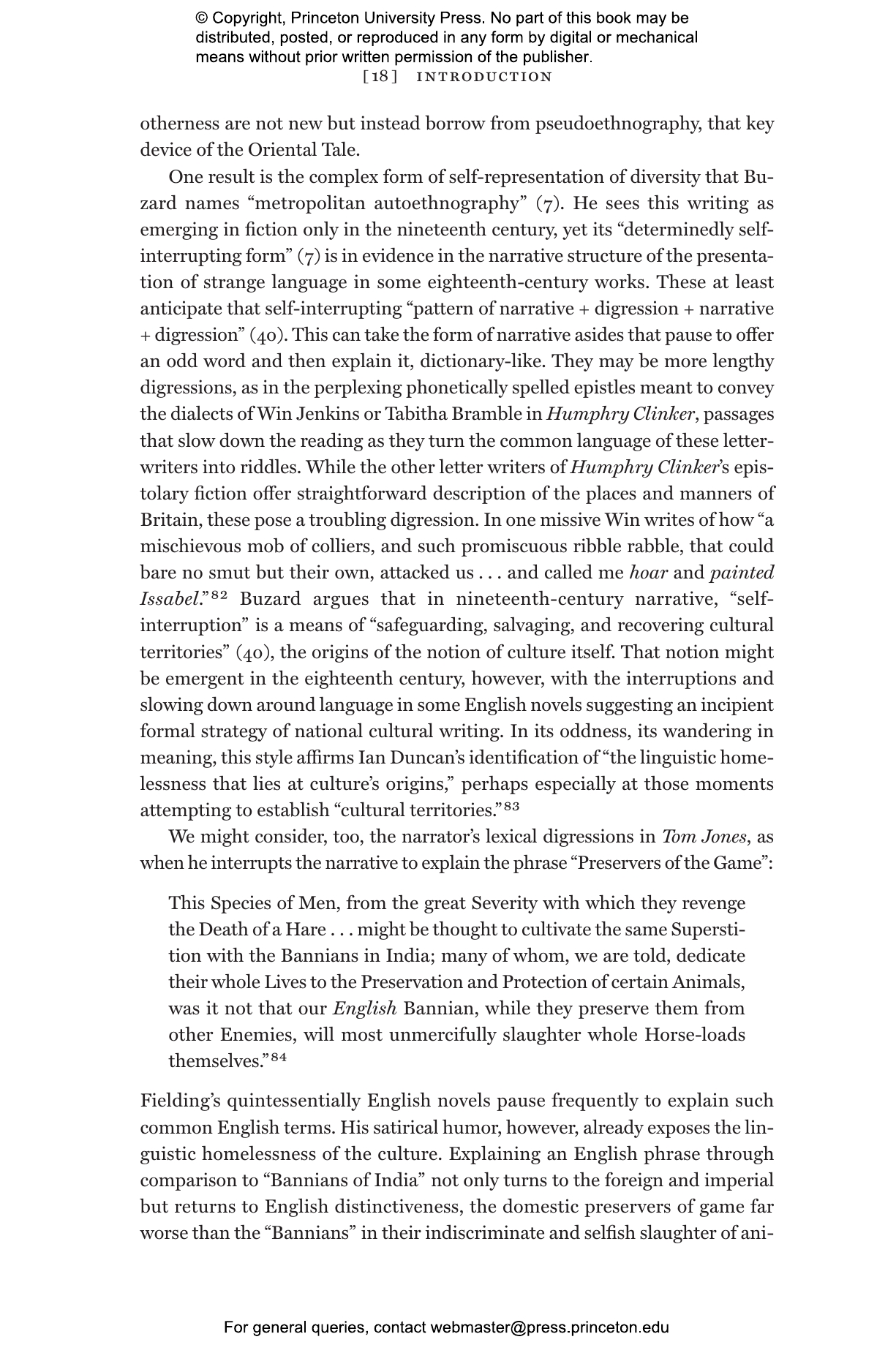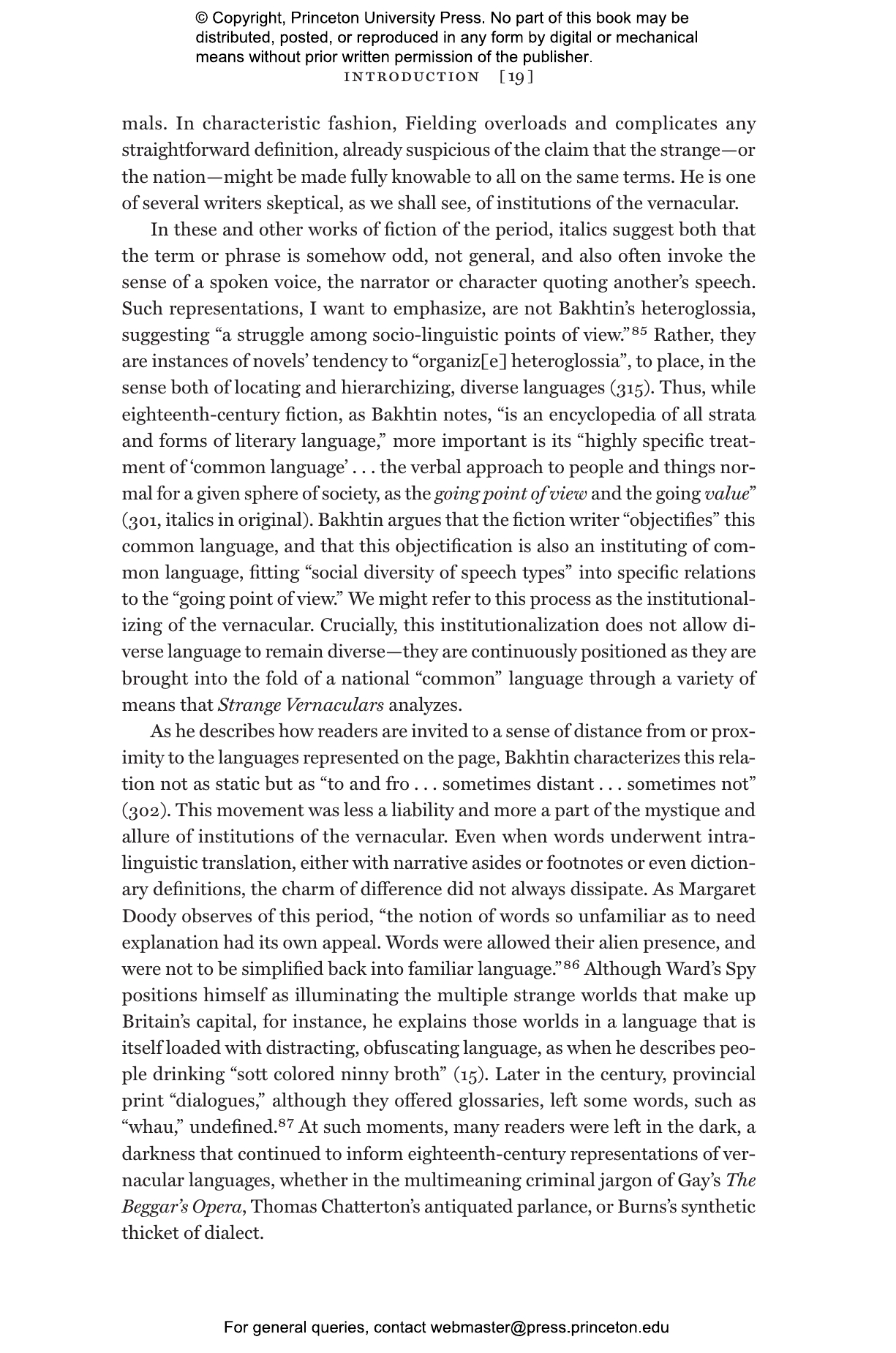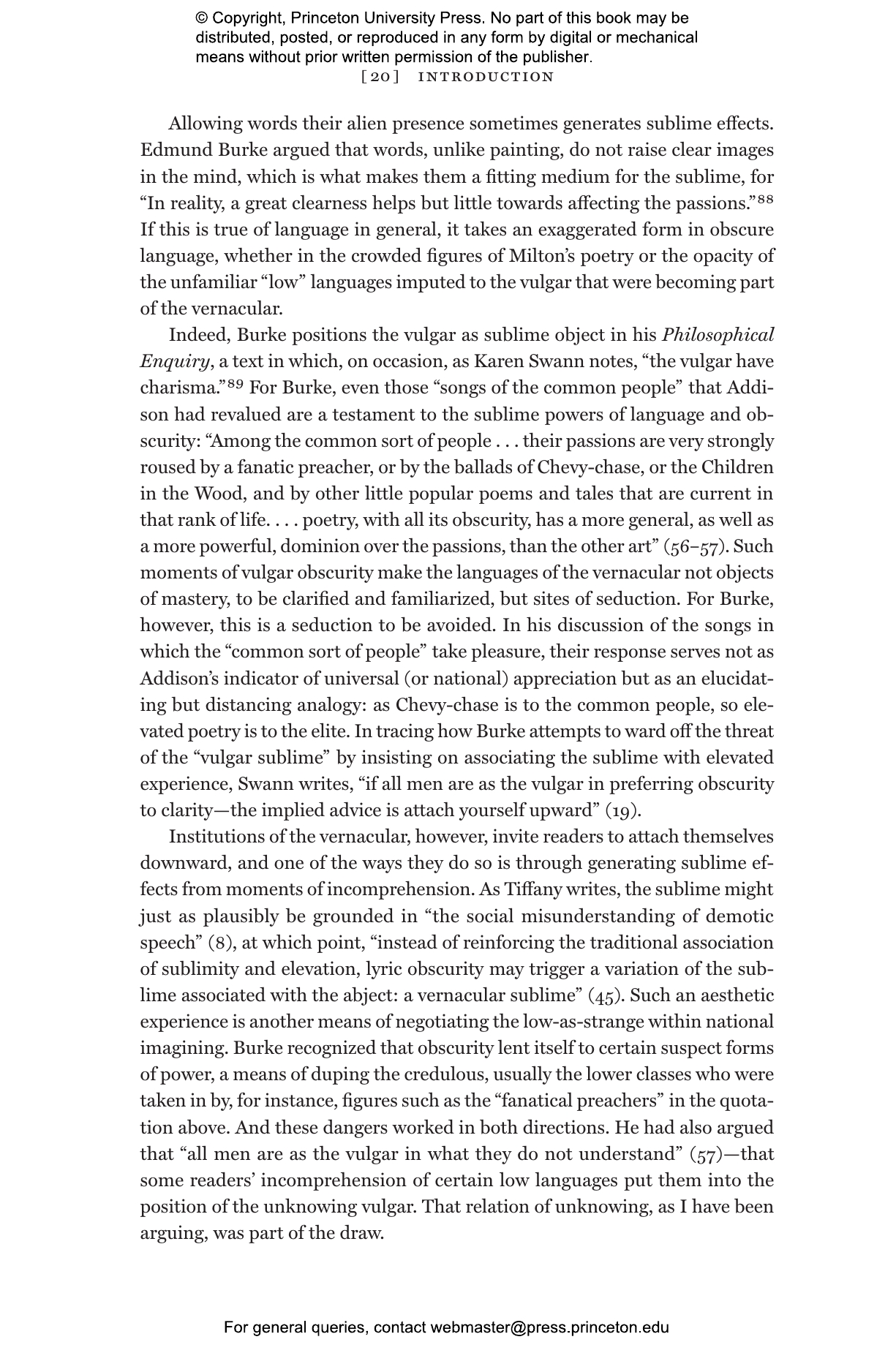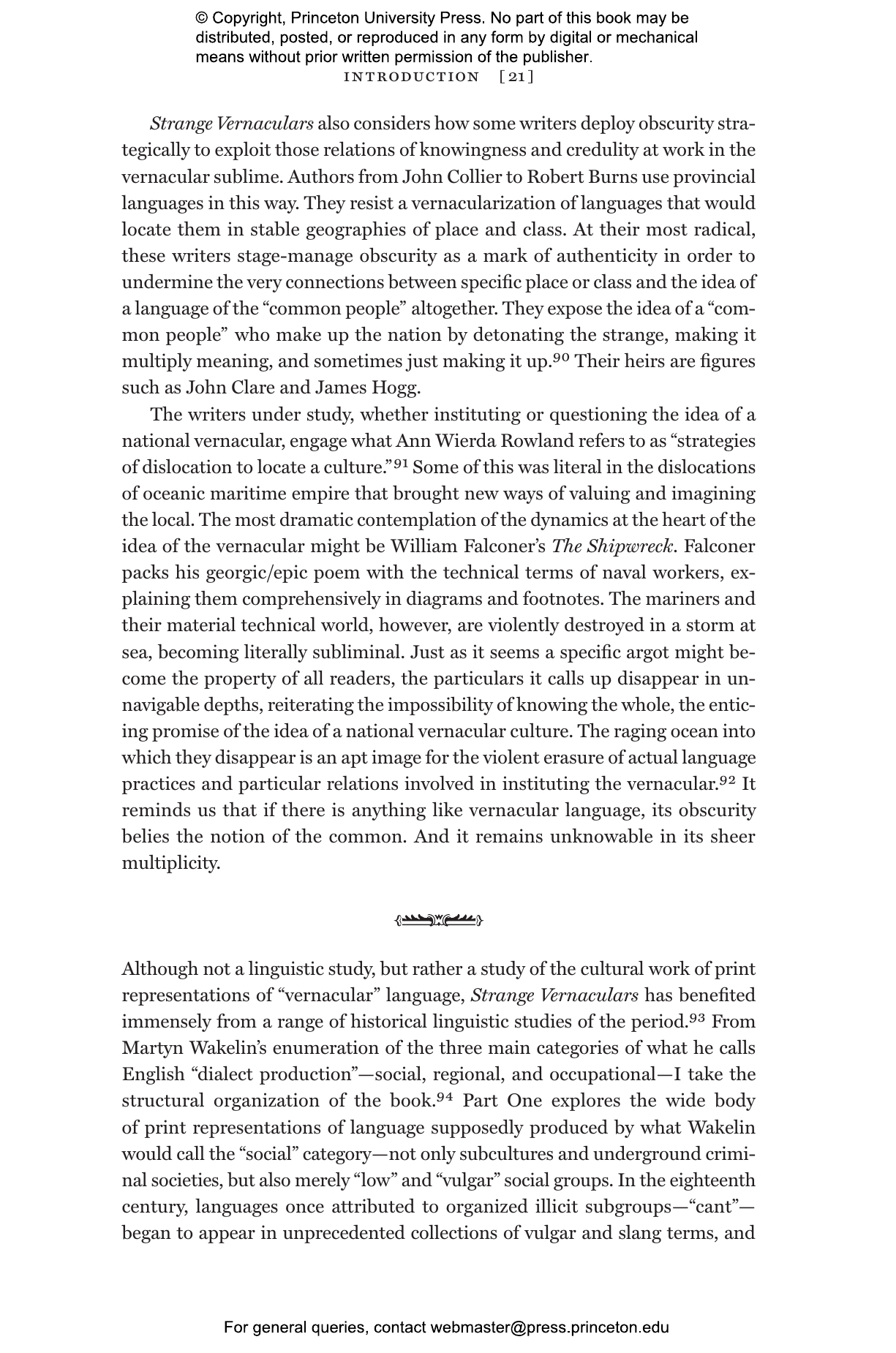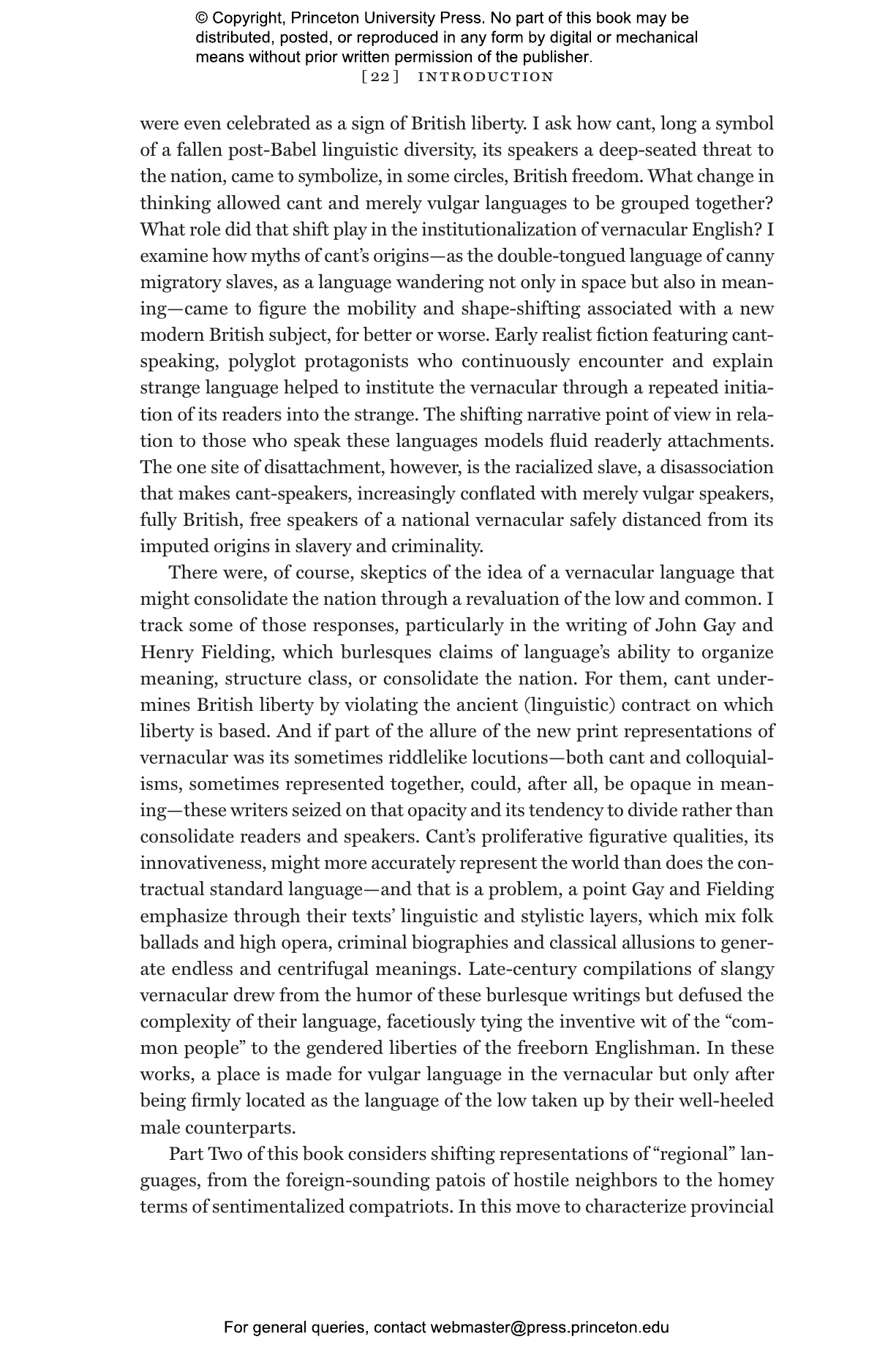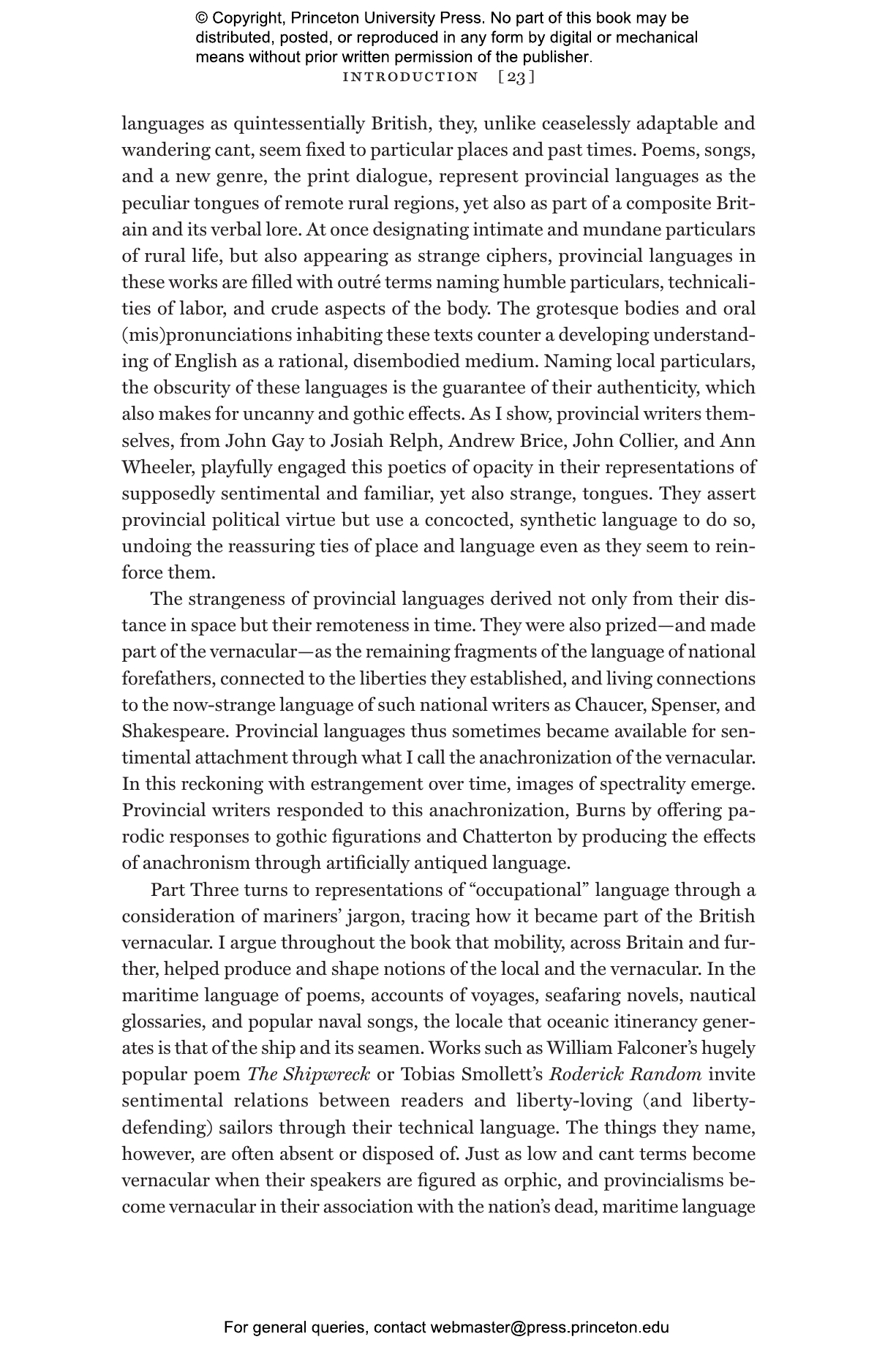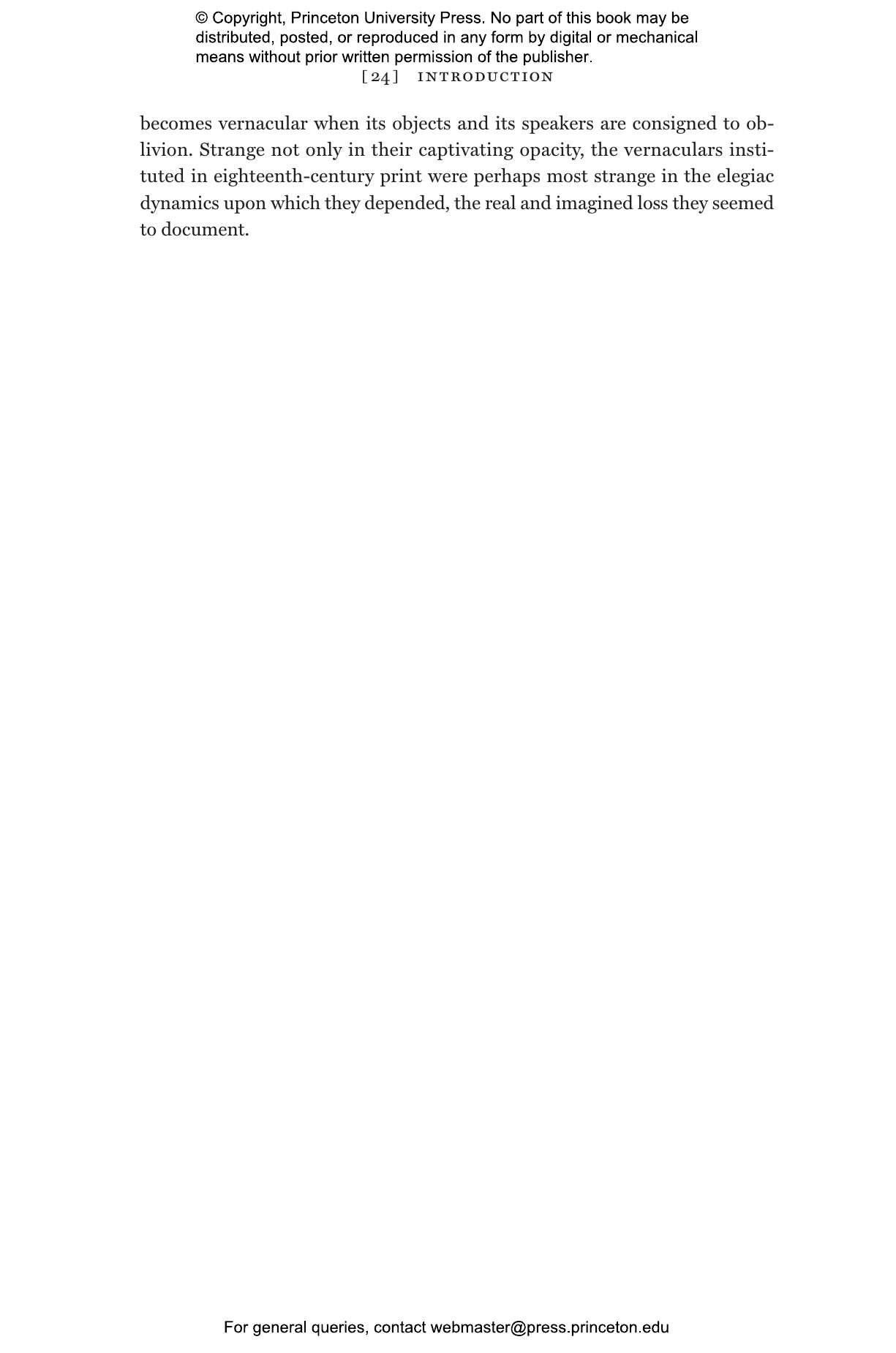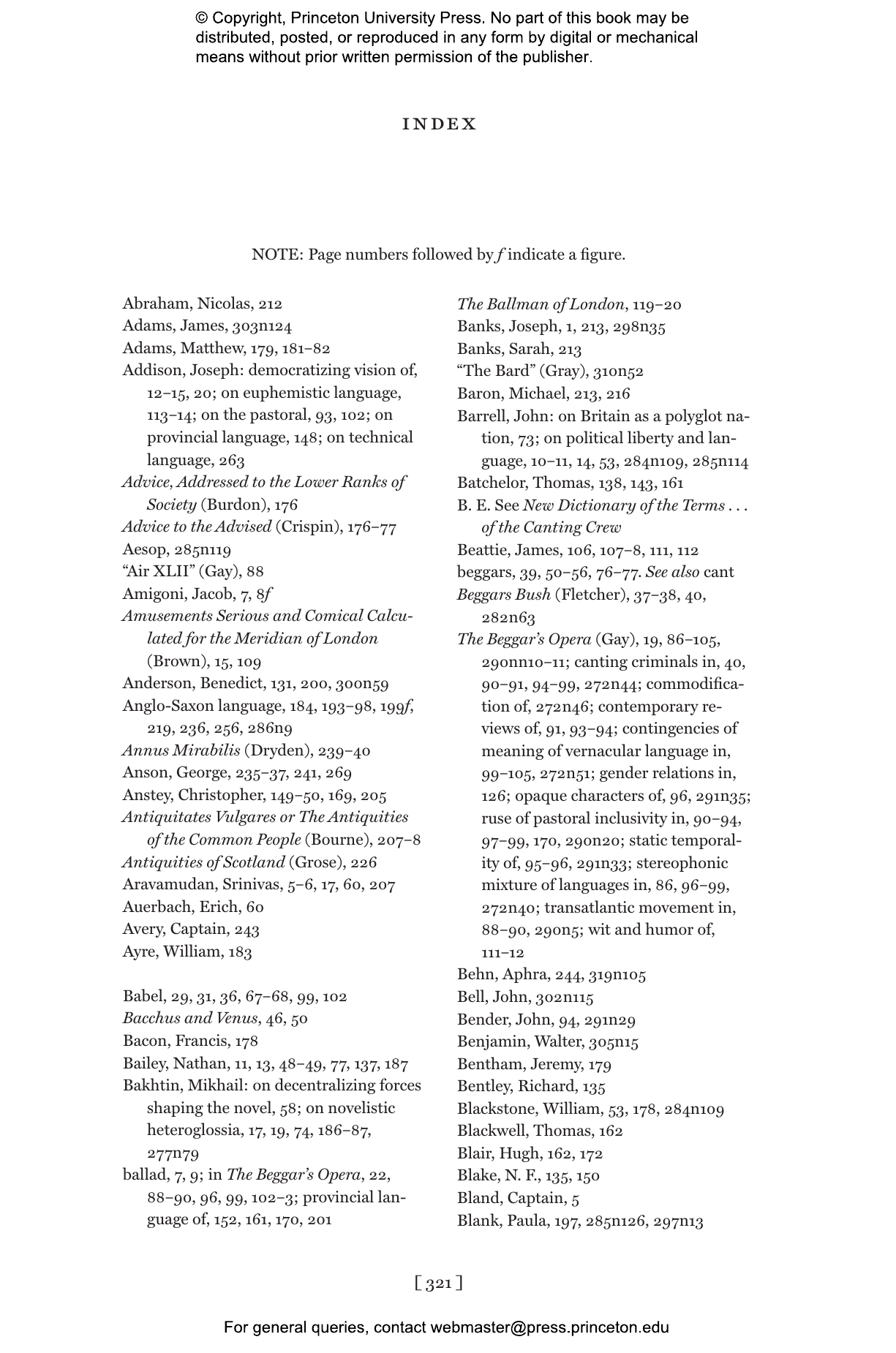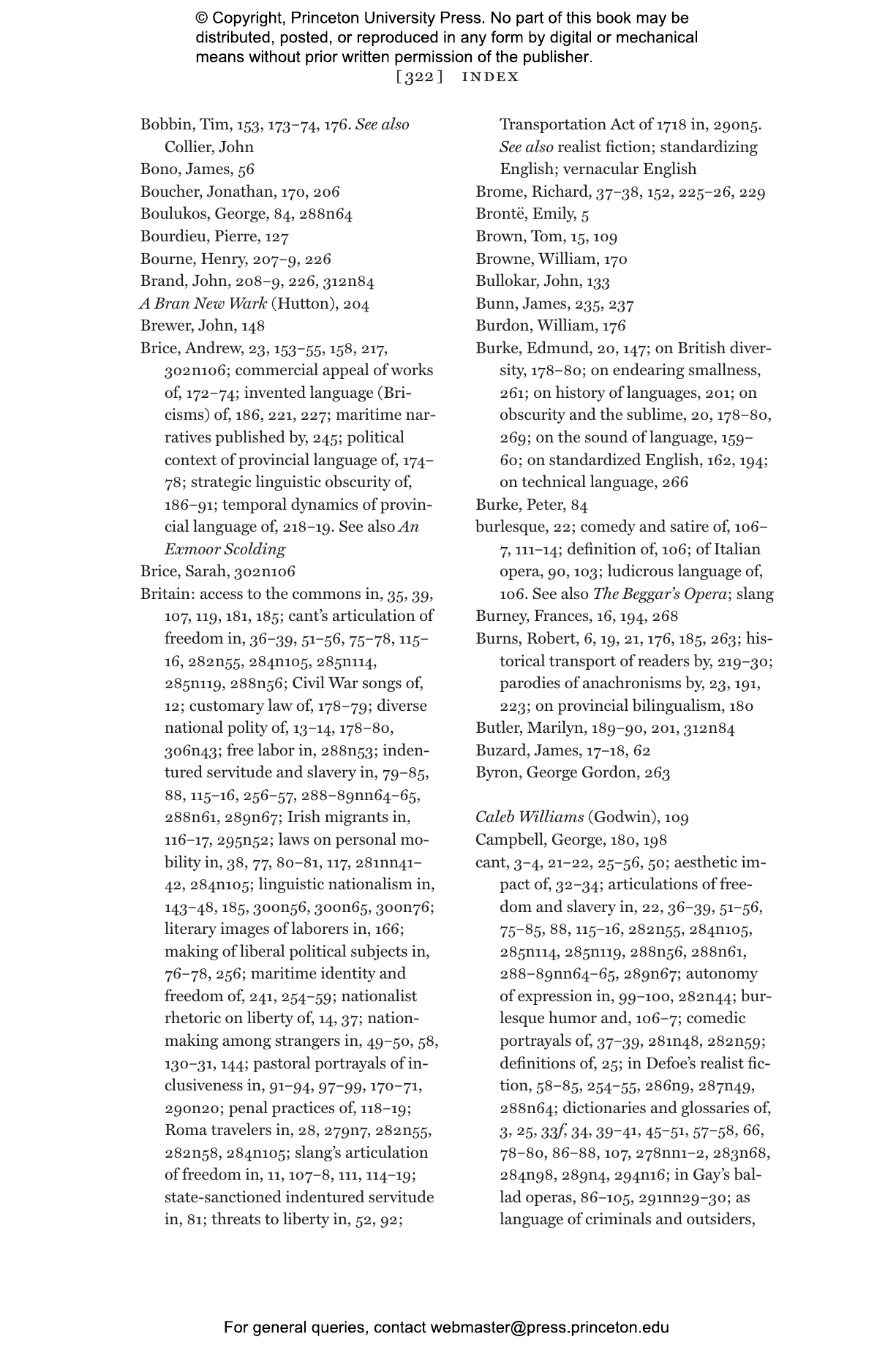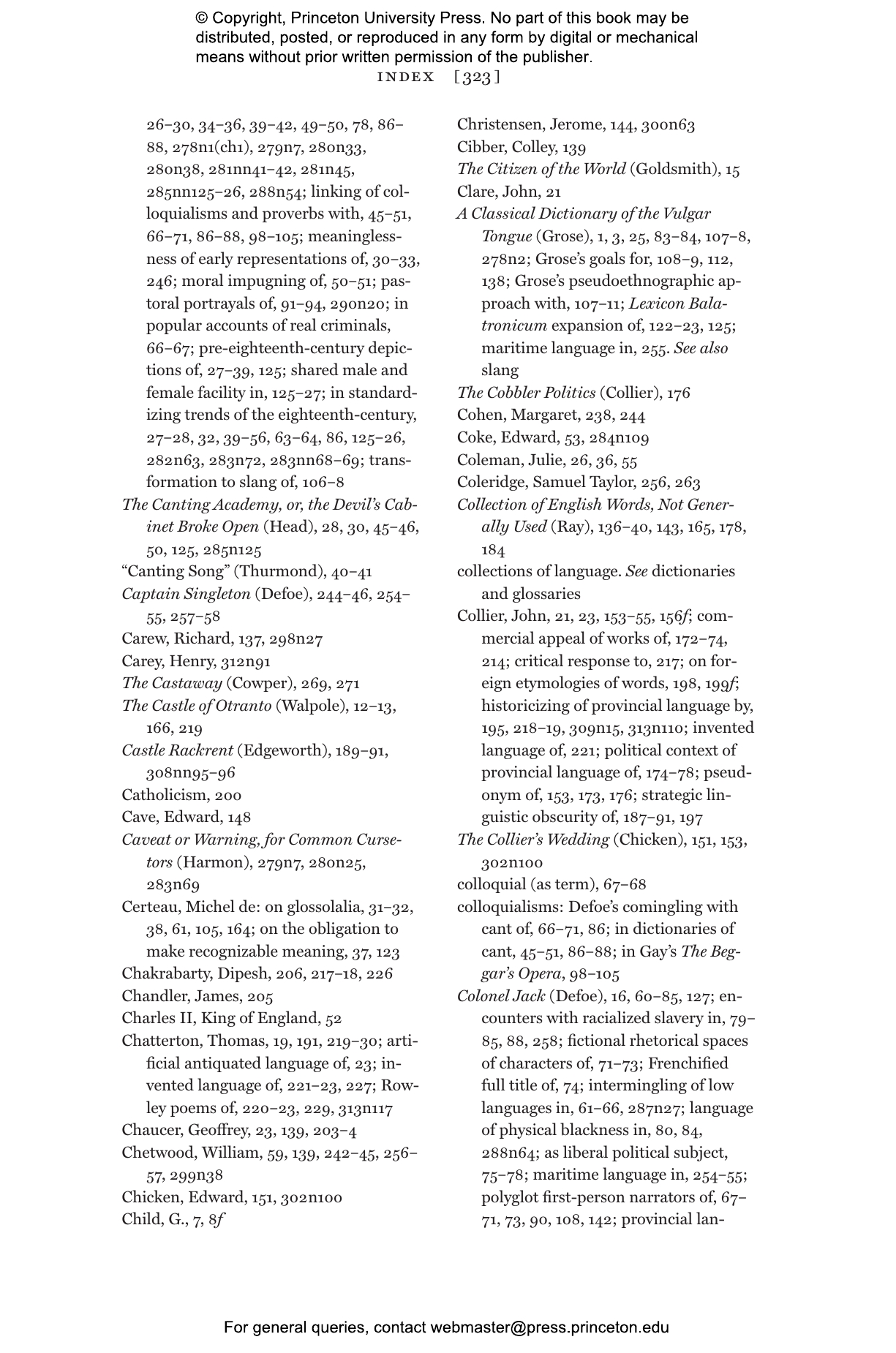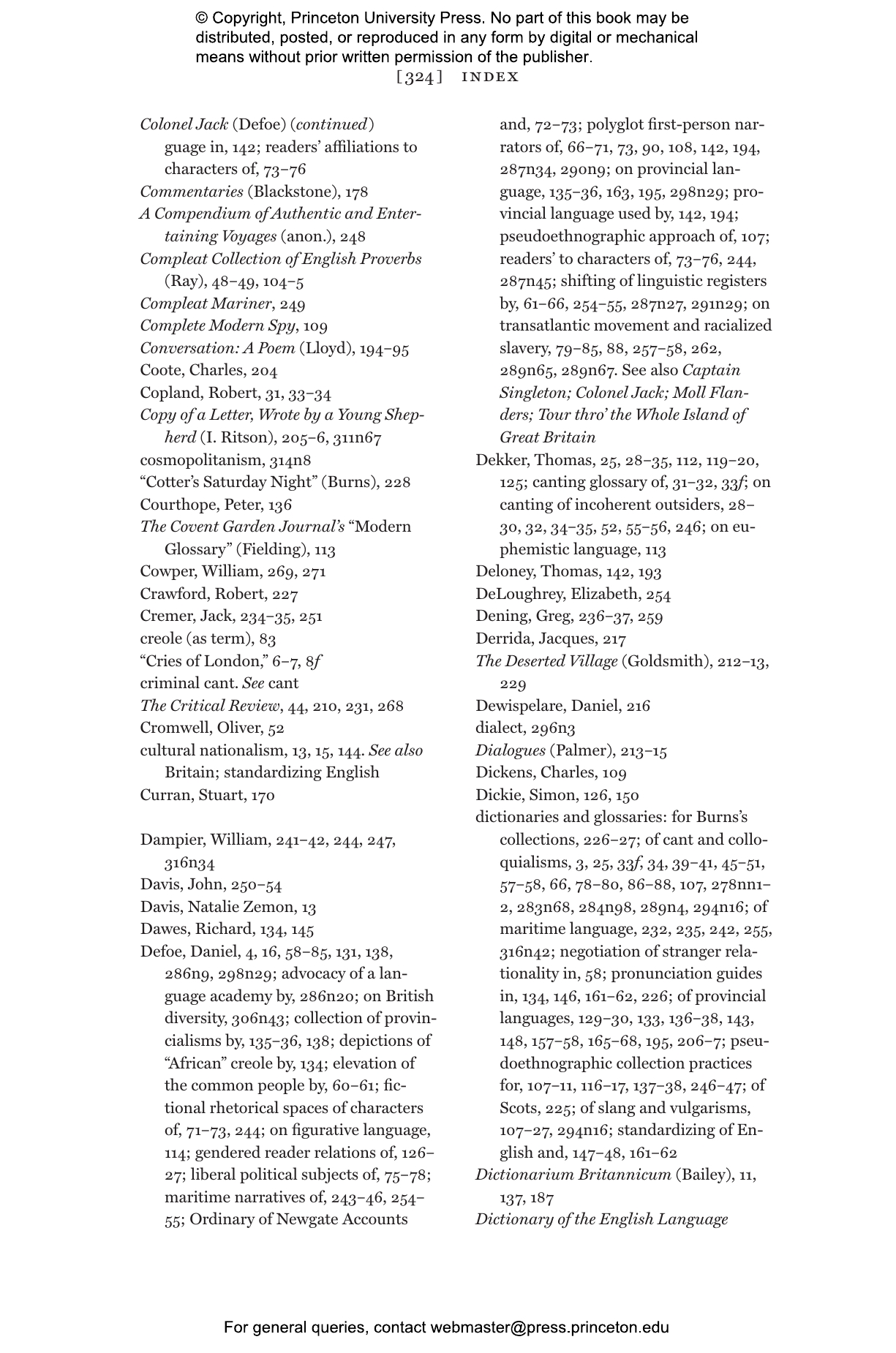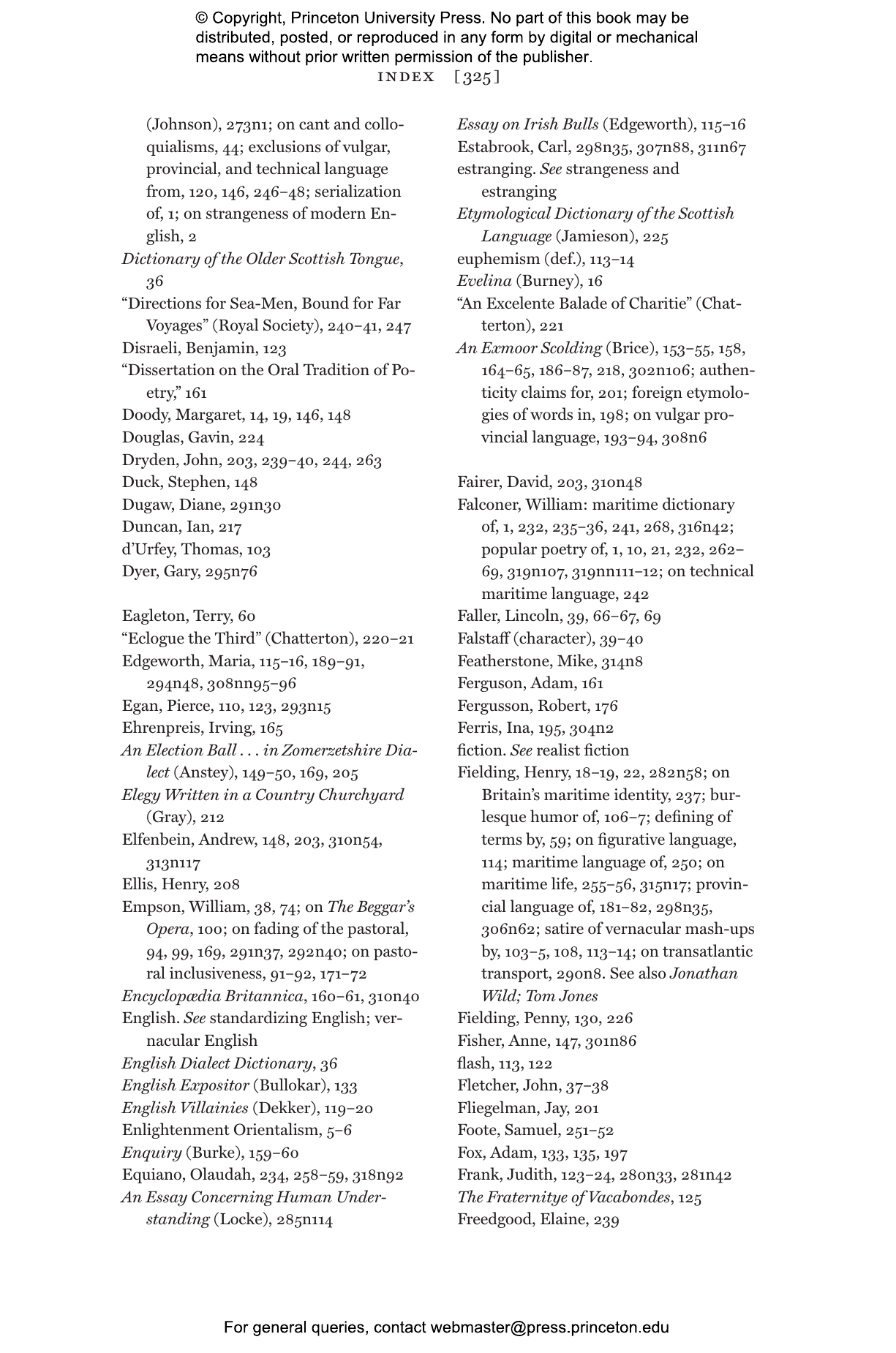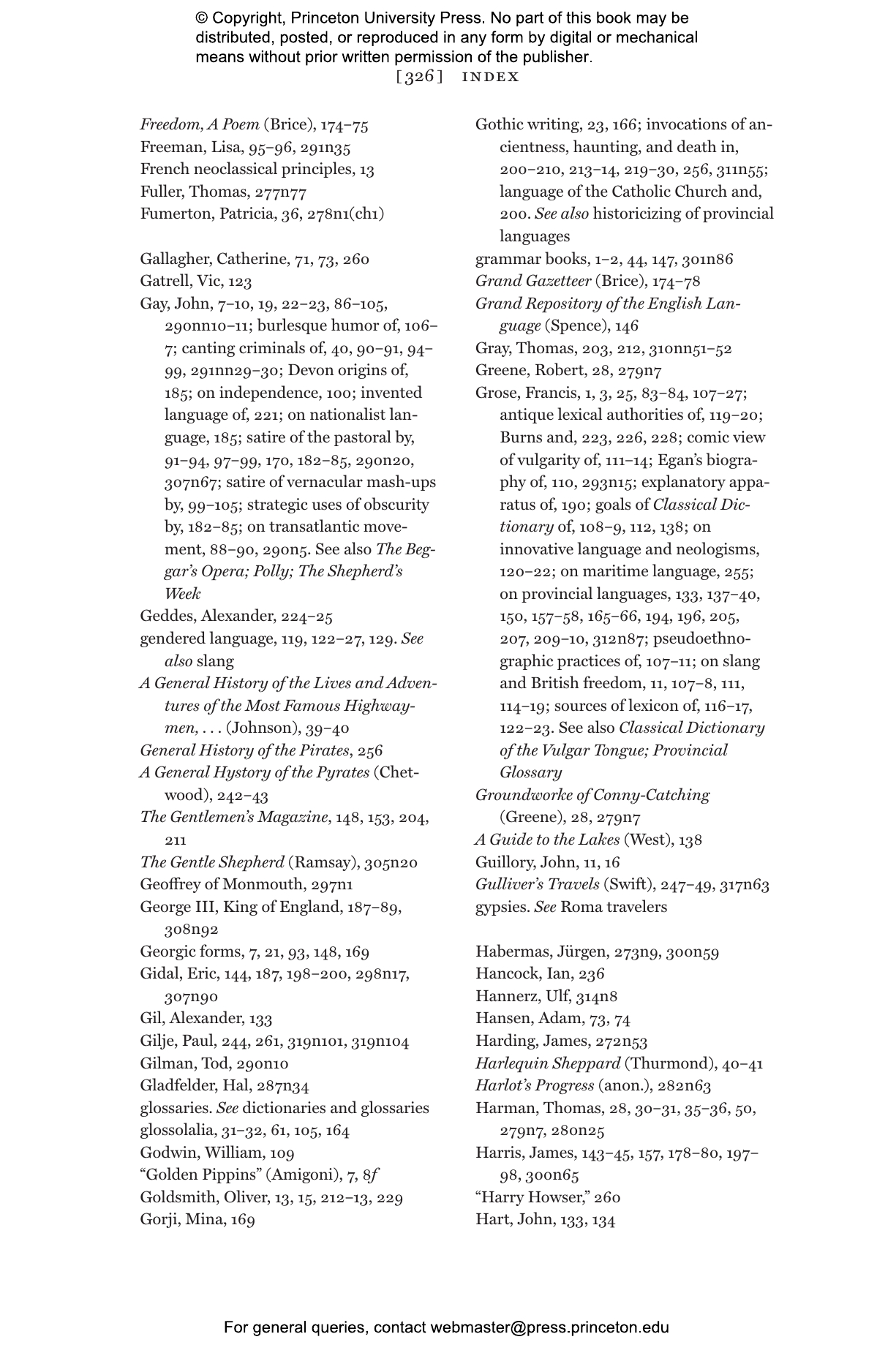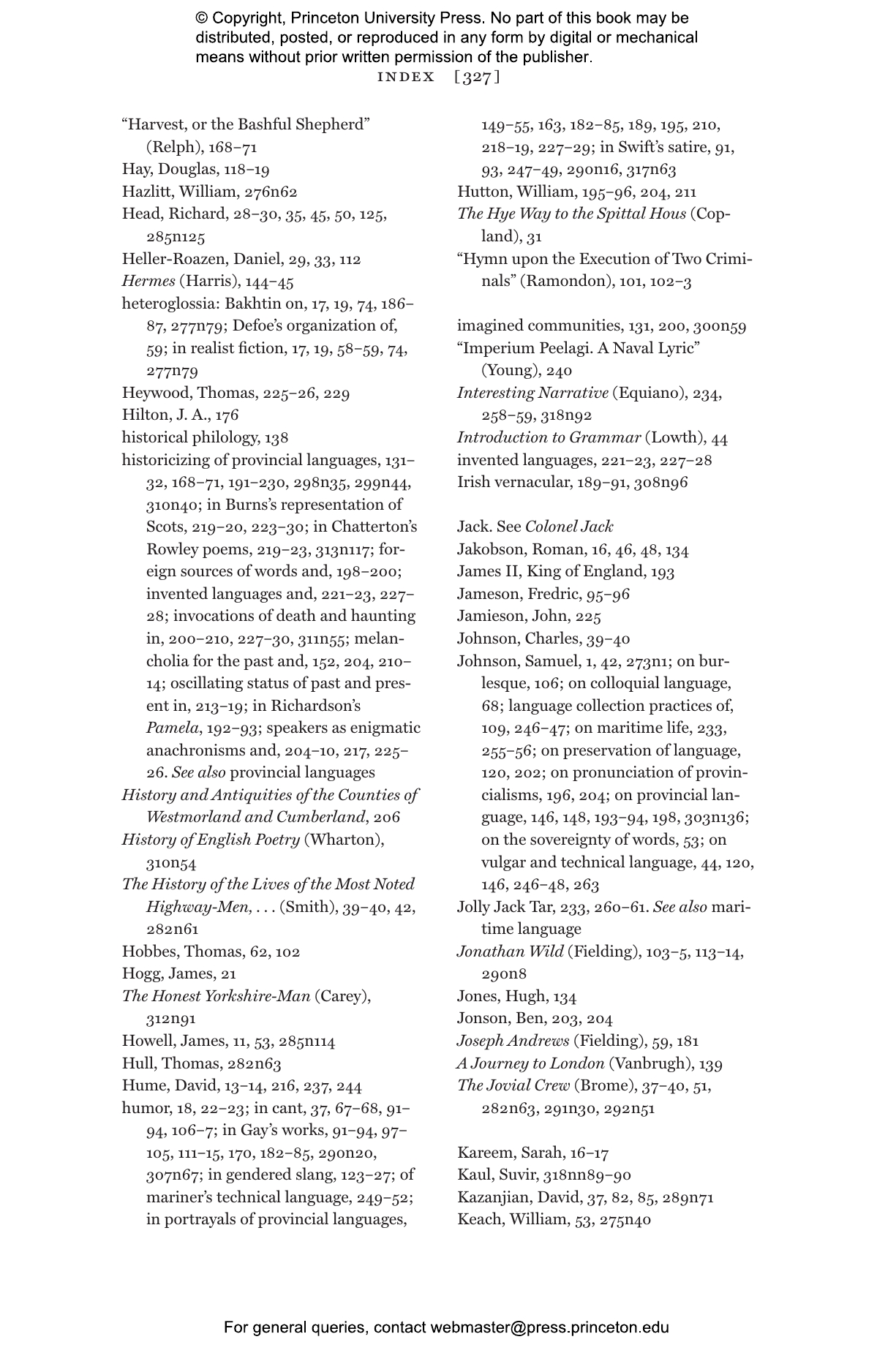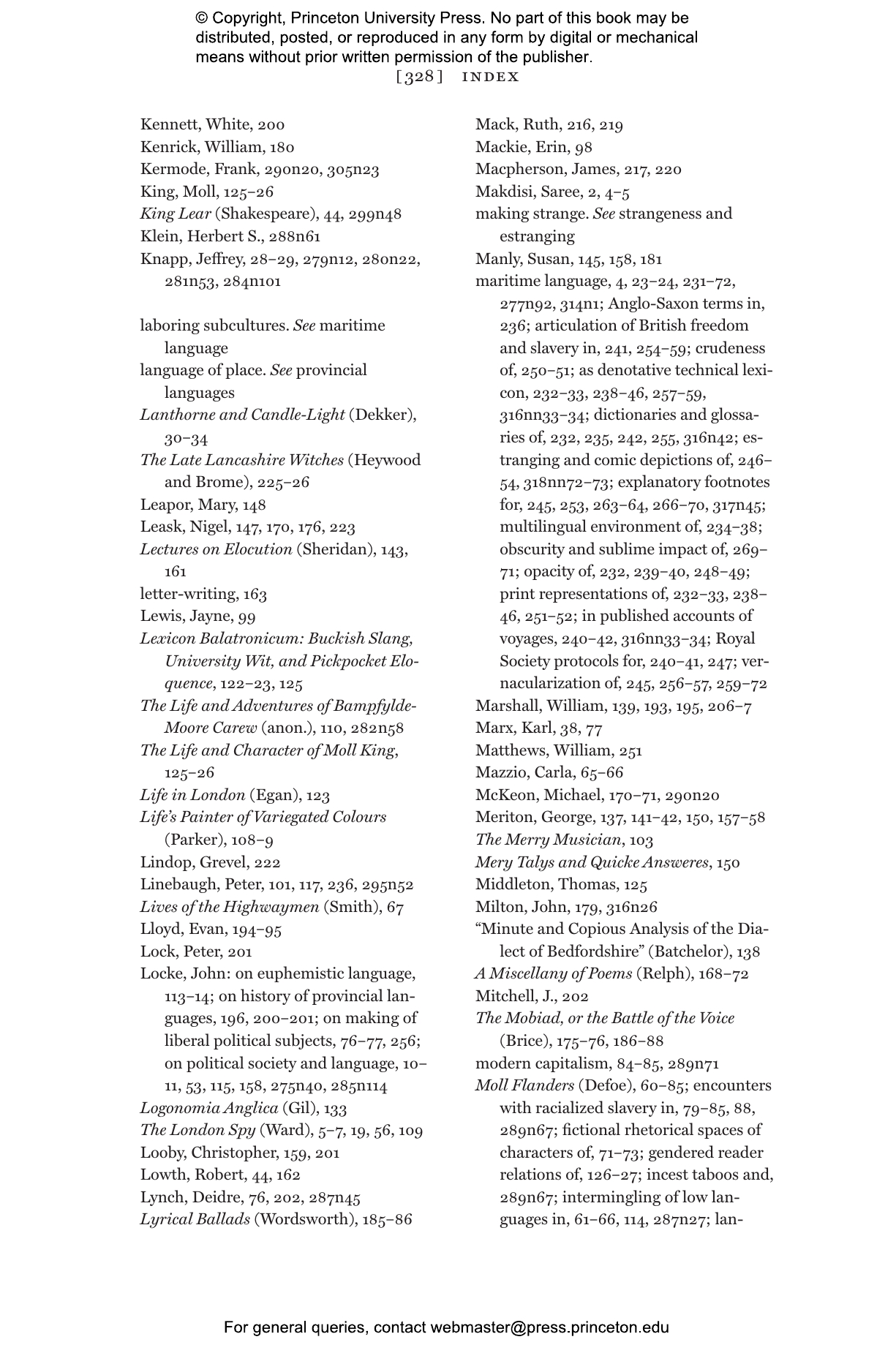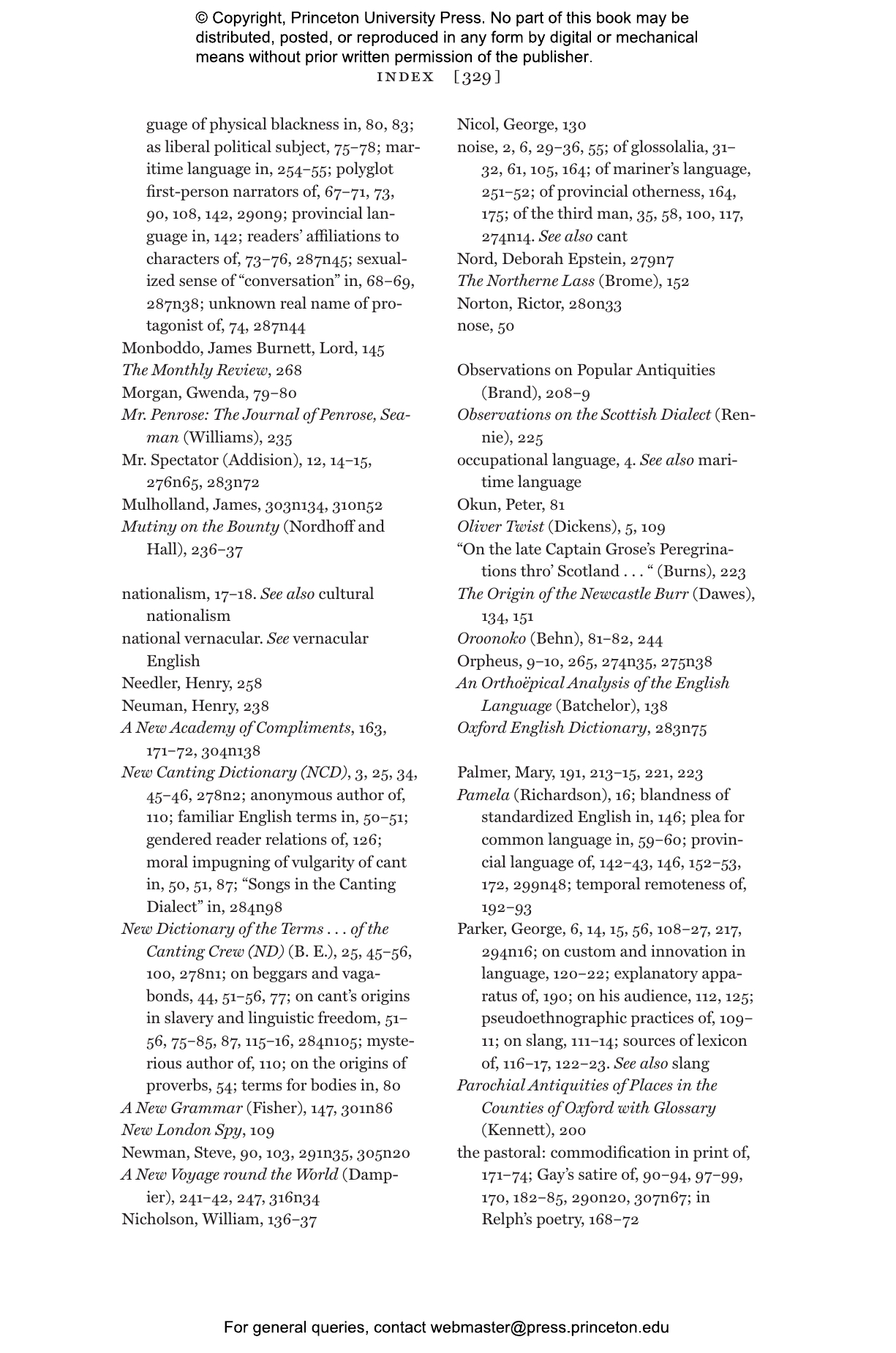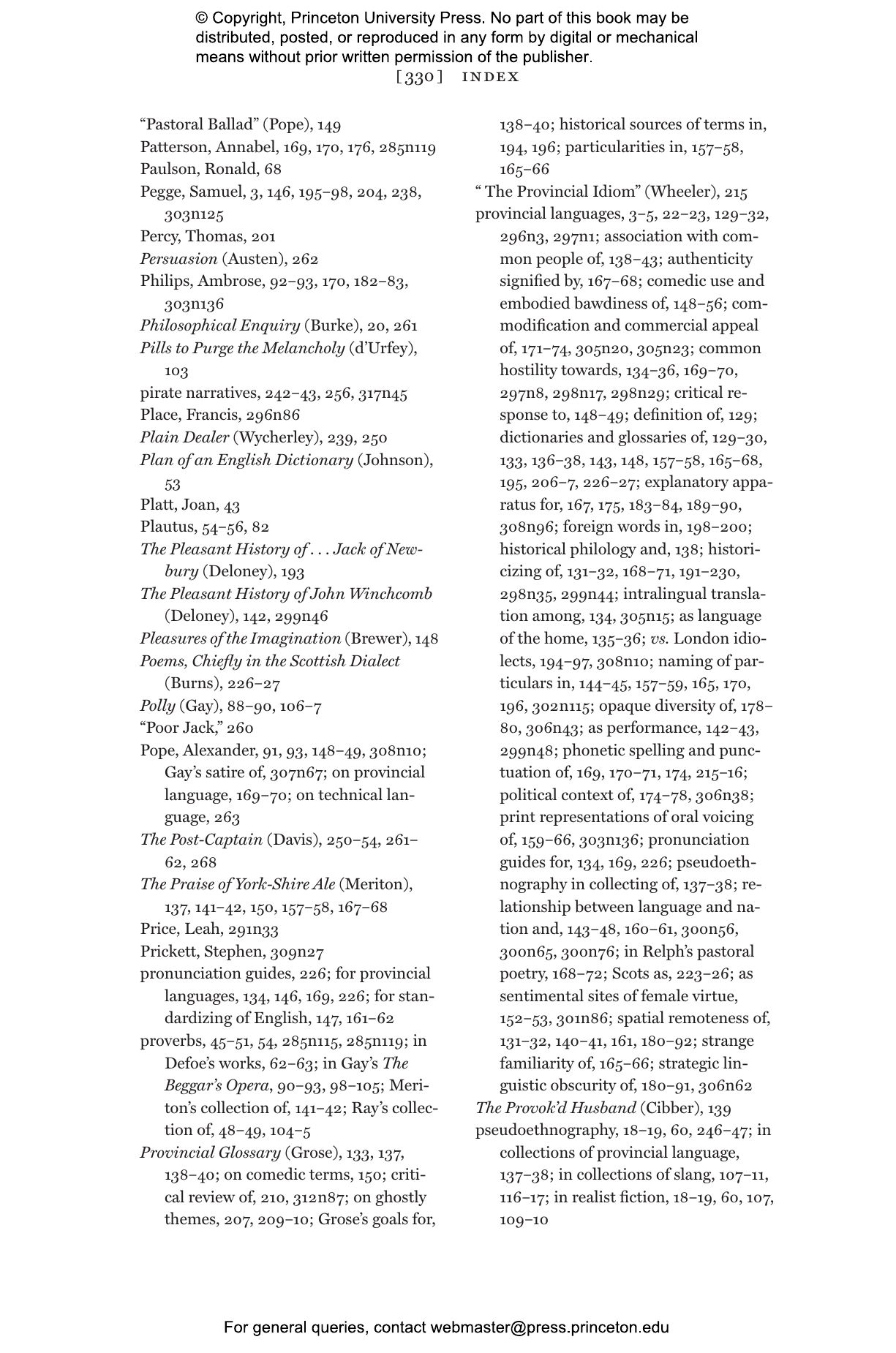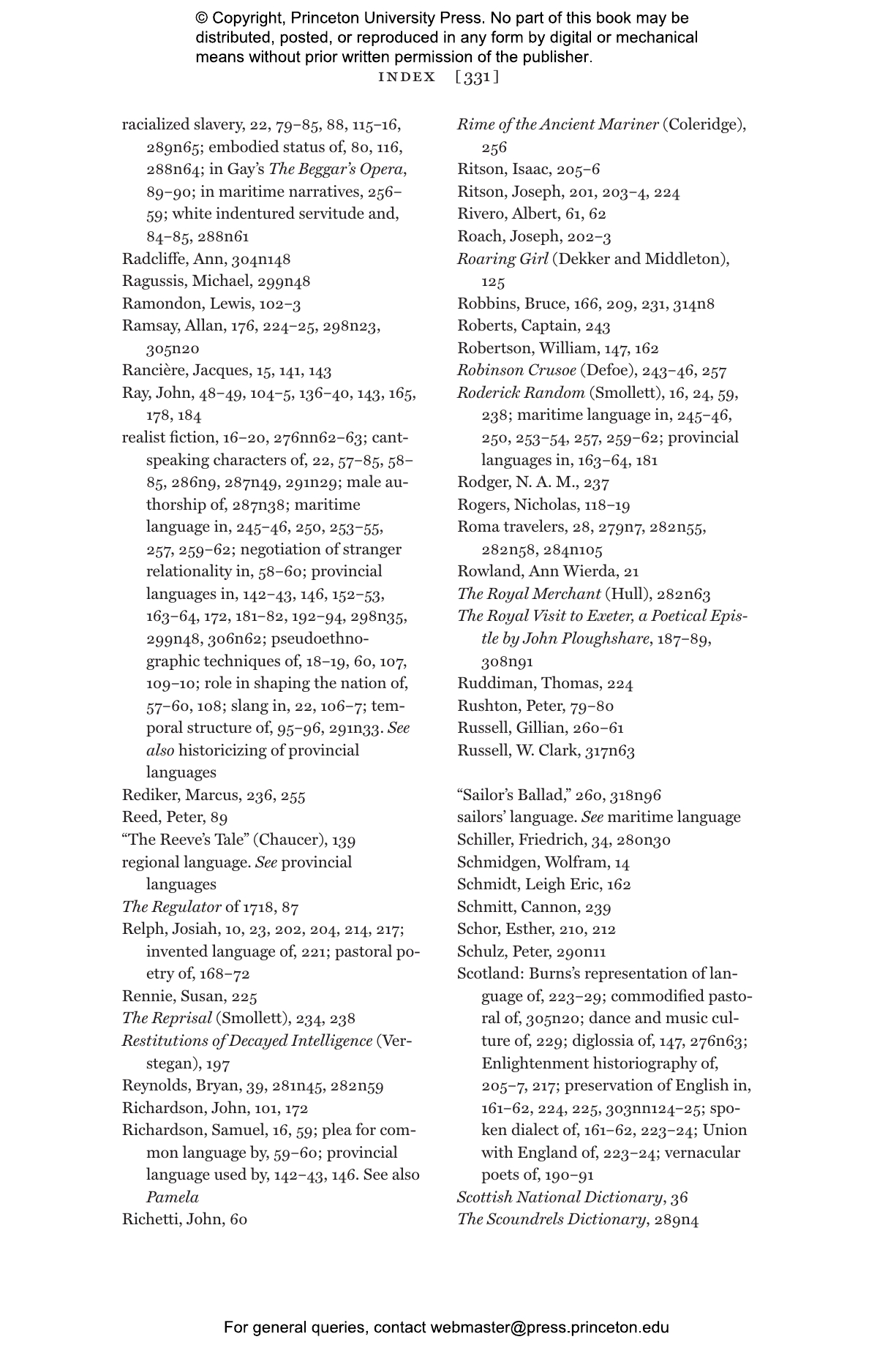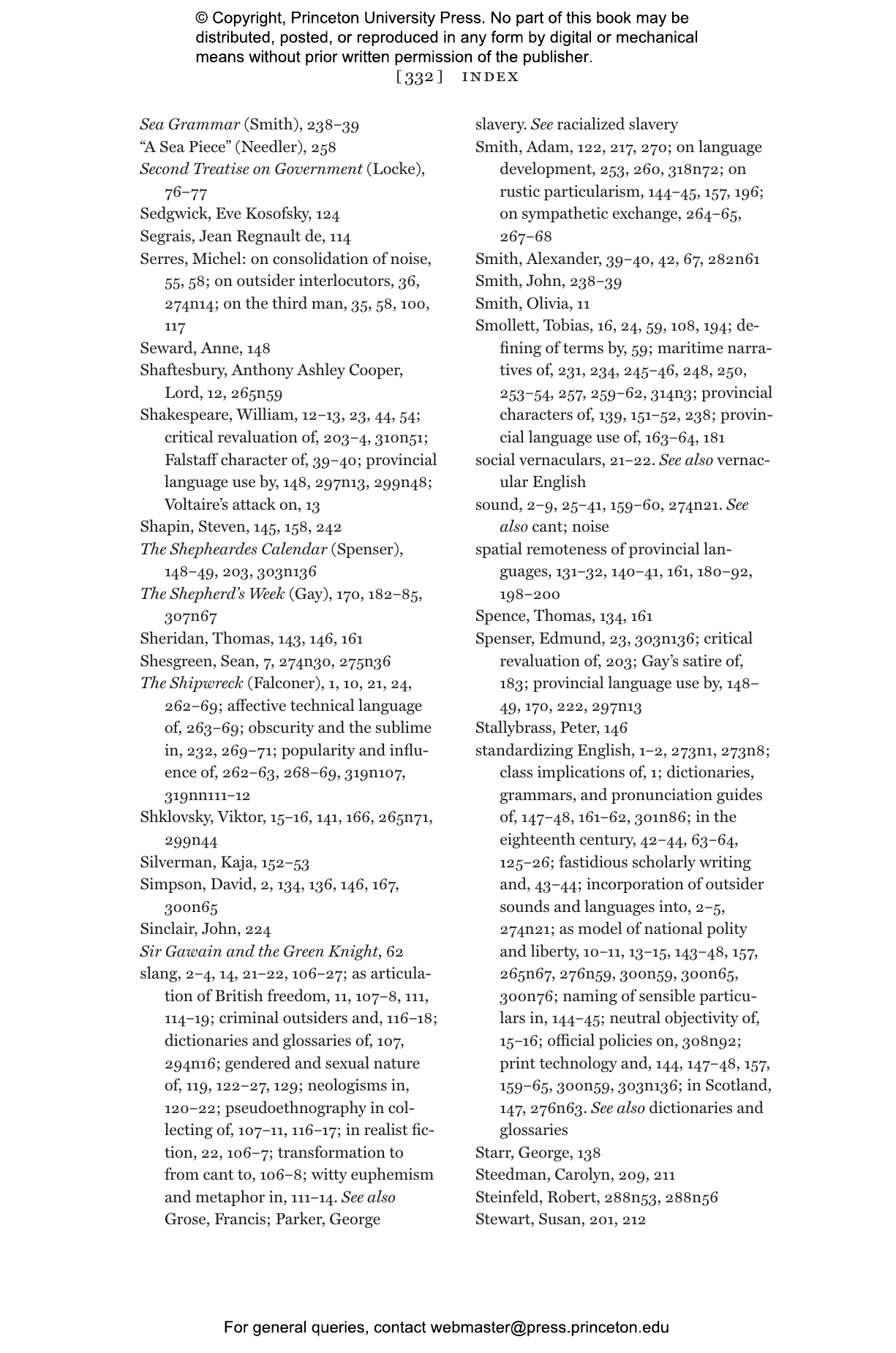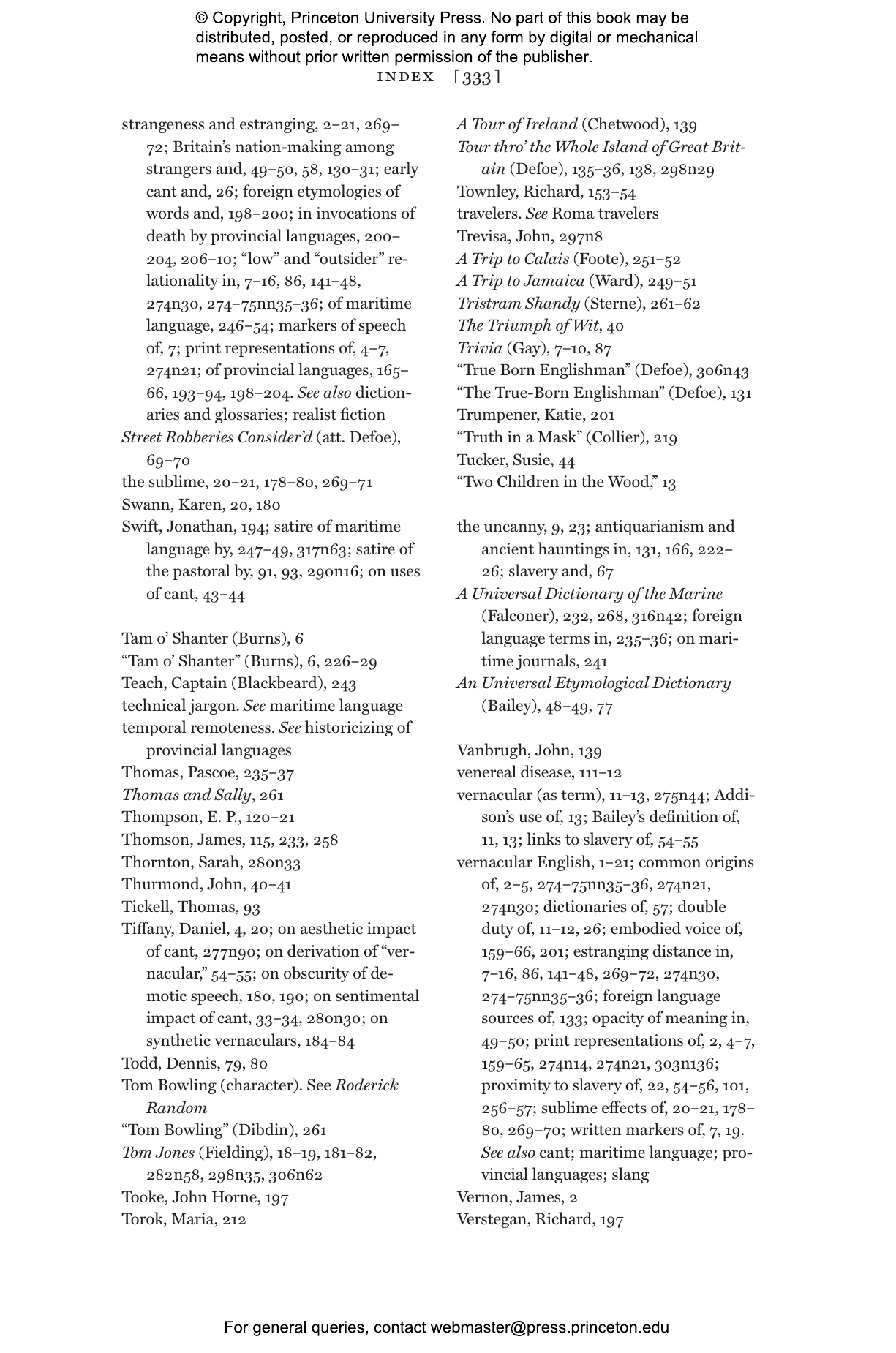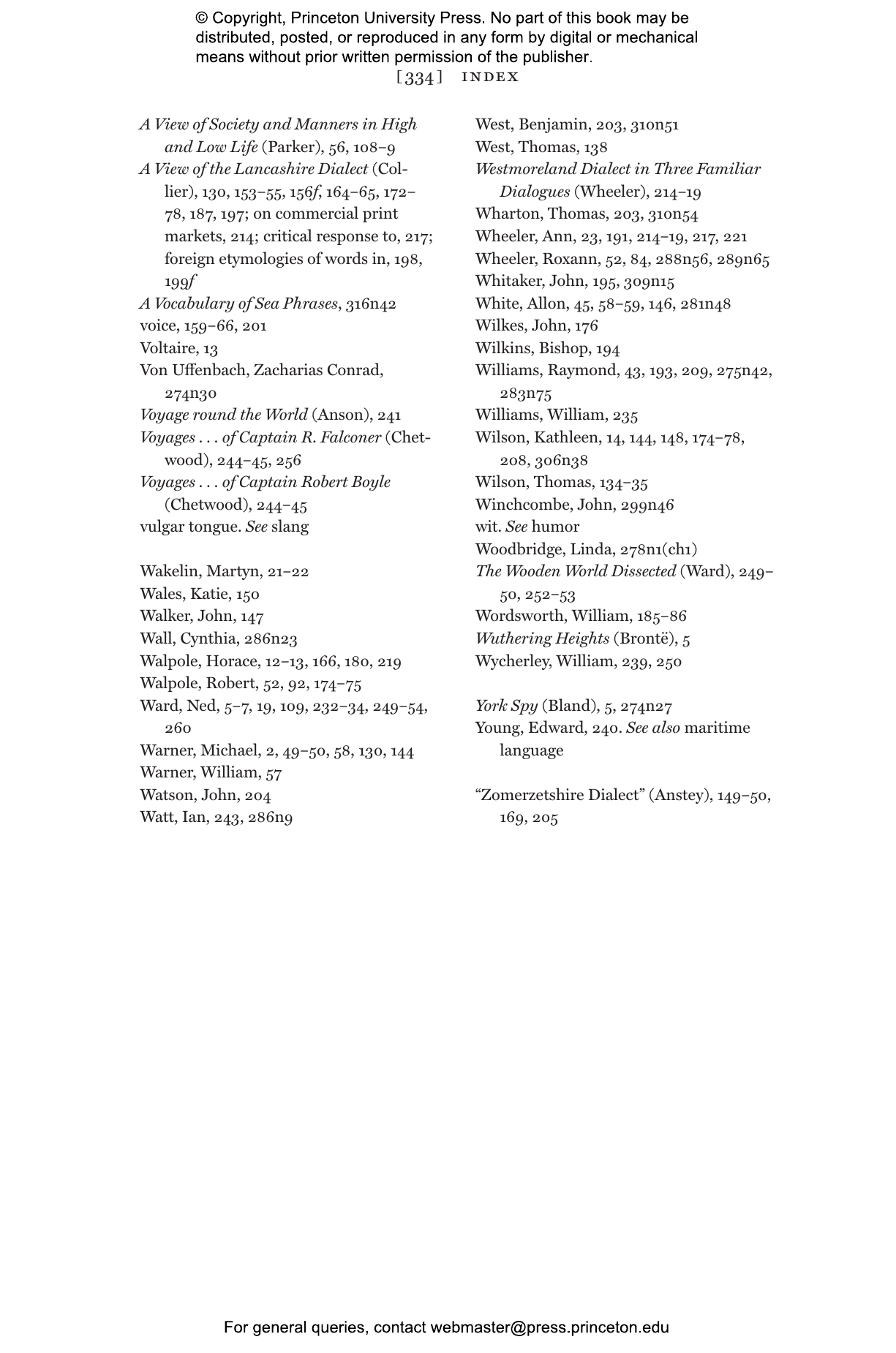While eighteenth-century efforts to standardize the English language have long been studied—from Samuel Johnson’s Dictionary to grammar and elocution books of the period—less well-known are the era’s popular collections of odd slang, criminal argots, provincial dialects, and nautical jargon. Strange Vernaculars delves into how these published works presented the supposed lexicons of the “common people” and traces the ways that these languages, once shunned and associated with outsiders, became objects of fascination in printed glossaries—from The New Canting Dictionary to Francis Grose’s Classical Dictionary of the Vulgar Tongue—and in novels, poems, and songs, including works by Daniel Defoe, John Gay, Samuel Richardson, Robert Burns, and others.
Janet Sorensen argues that the recognition and recovery of outsider languages was part of a transition in the eighteenth century from an aristocratic, exclusive body politic to a British national community based on the rhetoric of inclusion and liberty, as well as the revaluing of a common British past. These representations of the vernacular made room for the “common people” within national culture, but only after representing their language as “strange.” Such strange and estranged languages, even or especially in their obscurity, came to be claimed as British, making for complex imaginings of the nation and those who composed it. Odd cant languages, witty slang phrases, provincial terms newly valued for their connection to British history, or nautical jargon repurposed for sentimental connections all toggle, in eighteenth-century jest books, novels, and poems, between the alluringly alien and familiarly British.
Shedding new light on the history of the English language, Strange Vernaculars explores how eighteenth-century British literature transformed the patois attributed to those on the margins into living symbols of the nation.
Examples of slang from Strange Vernaculars
- bum-boat woman: one who sells bread, cheese, greens, and liquor to sailors from a small boat alongside a ship
- collar day: execution day
- crewnting: groaning, like a grunting horse
- gentleman’s companion: lice
- gingerbread-work: gilded carvings of a ship’s bow and stern
- luggs: ears
- mort: a large amount
- thraw: to argue hotly and loudly
Janet Sorensen is associate professor of English at the University of California, Berkeley. She is the author of The Grammar of Empire in Eighteenth-Century British Writing.
"Show[s] how discourses on the English language both reflected and galvanized the forces of cultural and political hegemony in Britain, and those of expansion, empire and slavery on a global scale."—John Gallagher, Times Literary Supplement
"Sorensen shows how a wide range of authors represented and classified the real or imagined speech of lower status groups, refashioning it as 'strange vernaculars'. . . . She is especially strong on the hidden role of race. . . . Her final section on sailors' talk includes some fine points on Jane Austen, and on the allure of naval speech as both foreign and familiar, an allure that lies at the heart of the book."—Elspeth Jajdelska, Times Higher Education
"Sorensen brings together sociolinguistics and literary history in an innovative and subtle exploration of the social cachet that heteroglossia had for writers in the 18th century. . . . This sensitive work is both a contribution to 18th- century studies and a model of how heteroglossia in literature might be investigated in other eras."—Choice
"For readers interested in the evolution of English, this is a fascinating look at the role strangeness and otherness played in the development of a national language and identity."—James Holloway, Fortean Times
"I learned much from Strange Vernaculars, a dense, demanding, and thoroughly rewarding book."—Jack Lynch, Oxford Journal
"Sorensen integrates perspectives from historical sociolinguistics, dialectology, lexicography, literary criticism, folklore, and social history to give us a fresh and fascinating account of the growth of vernacular English in the early modern period. In her breadth of reading and depth of illustrative detail, she provides a hugely insightful contribution to our knowledge of the history of English studies that will quickly make Strange Vernaculars a standard work of reference."—David Crystal, author of The Cambridge Encyclopedia of the English Language
"In this marvelous book, Sorensen recovers overlooked complexities in the stories of national unification and linguistic standardization often recounted by scholars of Enlightenment Britain. Her discussion of the charisma that eighteenth-century writers and readers attached to heteroglot, canting, and riddling Englishes also represents an innovative work of literary history. Strange Vernaculars is remarkable for its erudition and its author's keen ear for verbal fun."—Deidre Lynch, author of Loving Literature
"Any student of eighteenth-century English literature and culture is aware to some extent of the important presence, or significant absence, of the regional or provincial speech in the literature of that period. But no one as far as I know has produced an authoritative, comprehensive, and fine-grained study of these vocabularies and what they signify and imply. This is a major, pathbreaking book."—John Richetti, University of Pennsylvania
"This brilliant book is a wise analysis of a range of vernacular words—slang, thieves' jargon, sailors' dialect—found in an admirably broad survey of reference works and canonical and noncanonical eighteenth-century literature. I enjoyed the detailed literary and cultural contexts and was incredibly impressed by the breadth of primary linguistic sources and secondary scholarship. Providing rich, interconnected perspectives on language, literature, and cultural history, Sorensen's argument is persuasively sophisticated."—Carol Percy, University of Toronto
